

Autism Travel
Taking a vacation together as a family can be challenging. We created Autism Travel to provide families and individuals with easy access to destinations and attractions that are trained and certified in autism and sensory sensitivities.
Recent Blogs & New Certified Options

Crayola Experience Mall of America® is proud to announce its new status as a Certified Autism Center™ (CAC), a significant milestone in its commitment to providing a fun and inclusive environment for all guests. The CAC designation, awarded by the…

Shores & Islands Ohio is now a Certified Autism Center™ (CAC), a designation granted by the International Board of Credentialing and Continuing Education Standards (IBCCES). The CAC designation is awarded to organizations that have completed autism training and certification to…

The Caribbean’s beloved family-friendly all-inclusive resorts continue a legacy of inclusion as the only hospitality company globally with ACAC designation Together with the International Board of Credentialing and Continuing Education Standards (IBCCES), the family-friendly all-inclusive Beaches Resorts proudly announces the…
Provided by IBCCES
IBCCES – the International Board of Credentialing and Continuing Education Standards – is the global leader in training and certification programs that help organizations better serve guests and clients with cognitive disorders, including autism, sensory disorders, and other hidden disabilities. We work to create inclusion and acceptance for these individuals with research-based training and certification programs designed for a variety of industries.
Certified Autism Centers™ (CACs) have been covered on:

Individuals with an autism spectrum disorder (ASD) need autism certified recreational activities. Many times, we concentrate on housing and education, neglecting the need for ‘fun’. We do the same activities – roller skating, movies and outdoor activities, never thinking outside the box. Having other opportunities will increase individuals’ quality of life immensely. I will always encourage people providing experiences from organizations that are committed and understand people with an ASD.

In an unprecedented manner , the IBCCES Certified Autism Center program continues to expand travel options for people on the autism spectrum and their families. The work of IBCCES brings us closer to where understanding and support of the autism community by travel providers and destination points will become the rule rather than the exception.

As someone who serves on the Panel of People on the Spectrum of Autism Advisors (PSA) for the Autism Society and as a board member of IBCCES, I’ve had the opportunity to see firsthand the tremendous work that both these groups continue to provide for our community. I’m thrilled with the endorsement from the Autism Society and I hope our families will be excited as they look at all the inclusive travel options IBCCES continues to provide. I can’t stress the impact that this will have in terms of forward progress, as when I was growing up on the autism spectrum I could only dream about having these options available for me and my family.
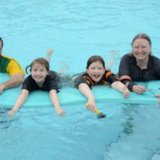
Traveling to a destination where the staff are trained to recognize and address the needs of children on the Autism Spectrum simply makes our trip less stressful and more enjoyable. We know that once we arrive on resort that the stress of the trip is over and we can relax without having to worry over what the next meal will be or how the staff will react to the kids. It give us the freedom to enjoy a vacation in the same way that ‘regular’ families can.

We are so proud to have become a Certified Autism Center after our associates went through specialized training provided by the wonderful staff of IBCCES. Families that live with autism can feel comfortable knowing our employees understand their needs. We have continuing education and videos available today to help us maintain this caring and inclusive culture throughout our resort.

As a mom of three boys, two with Autism and sensory processing issues, it’s such a great comfort to now have a wide range of Certified Autism Centers to choose from when selecting a destination for our next family vacation.

AutismTravel.com gives families like mine a stronger sense of hope that more theme parks/resorts, restaurants, theaters, cruise ships, airlines, etc are trained and certified in the skills they need to accommodate families on the autism spectrum so that they can also live and experience the typical dream of making great family memories together.
Featured Destinations
Travel survey.
Survey conducted and collected by IBCCES
Families with autistic members and individuals who are on the spectrum were asked:
Are you hesitant to travel or visit new locations because you and/or your child is autistic?
Would you be more inclined to travel if autism certified options were available?
Would you take more vacations or visit more new places if you had access to autism-trained and certified options?
Do you look to physicians or therapists for travel approval?
responded “Yes”
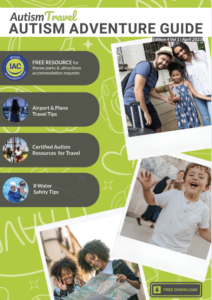
Download your copy of the new Adventure Guide with certified travel and entertainment options and other resources.
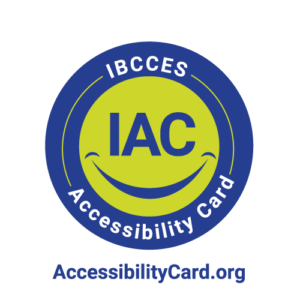
Free Tool for Theme Park & Attraction Visits. Created to help streamline the accommodations requests process.
- Virtual Tour
5 destinations designed for autism-friendly travel
TRAVELING WITH AUTISTIC CHILDREN or family members is a complex proposition. It’s a great way to give your loved one a truly memorable experience, though it can take everyone out of their comfort zone where its easy to feel the most safe and calm. That’s why destinations around the country — from venues like museums to entire cities and regions — have taken steps to be more autism-friendly.
But what does autism-friendly mean, and how can you identify an autism-friendly destination?
Choosing an autism-friendly destination means taking several factors into consideration. Crowd size, accessibility of activities (i.e. length of lines), and potential sensory overload could all negatively impact the travel experience of a person with autism.
Kerrianne Galvin, a licensed social worker who works extensively with youth and their families on behavioral challenges related to autism, believes traveling can be rewarding for autistic individuals, though also challenging and potentially anxiety-inducing.
“Stimuli like light and sound can be overwhelming,” she says. “Autism-friendly destinations take the sensory needs and safety of people with autism into consideration. They can do so by providing trained staff, knowledge of special needs, alternate lighting (dimmable lights and lamps), quiet spaces, and disability services.”
Even if the destination itself is autism friendly, each traveler’s level of tolerance must still be taken into account. That means carefully structuring the trip, regardless of how accommodating the destination might be.
“We usually go out in the morning and then return to the hotel for the afternoon and then out again early evenings.” says Patricia Lynn Ward, a travel coach and single mother of two children with autism. “They need frequent breaks away from the hustle and bustle of busy places, because they can only handle noise and people for so long. So when looking for a destination, I need something where the main attractions are within 30 mins from the hotel.”
Ward also tries to “ensure there is a routine to the day, and basic needs are met. Keep bedtimes and mealtimes the same when possible. Bring snacks and drinks when you are out. Plan each day with the pattern of travel. It helps the individual with autism know what to expect.”
With that in mind, these are a few of the destinations best-suited for autistic travelers in the US.
Myrtle Beach, South Carolina
Already among the most popular destinations for family vacations in the US, Myrtle Beach is also one of the best for autistic travelers. In 2018, the city worked closely with restaurants and local attractions to accommodate travelers with special needs.
Most notably, this effort manifested in the CAN Card (Champion Autism Network Card). These cards serve as passes for families where overstimulation might become an issue, and can be used with no questions asked. With a CAN Card, families can skip the line at crowded attractions, get private seating or quicker service at restaurants, and curbside check-in at hotels. Participating venues have been trained to accommodate the needs of autistic visitors. At restaurants, the card will inform servers that you may need to leave at a moment’s notice, may be bringing special food for a member of your family, and may have other special requests. The cards are available at the Myrtle Beach Welcome Center.
In addition to having many businesses with staff trained to accommodate special needs, Myrtle Beach also has several venues designed as autism-friendly environments. Ripley’s Aquarium offers noise-canceling headphones as well as monthly “sensory-friendly mornings,” and Savannah’s Playground is the first enabling playground in the southeast region, specifically engineered with ADA-approved playground equipment for children with disabilities.
Visalia, California
Autism-friendly destinations tend to offer a wide range of outdoor activities with plenty of space and not too much overstimulation. Nellie Freeborn, the tourism marketing director of Visit Visalia, has a child with autism herself, and says that opportunities to explore as well as space to pull back if necessary makes Visalia an autism-friendly destination.
“In Visalia,” Freeborn says, “we are lucky to be the gateway to Sequoia and Kings Canyon National Parks and SequoiaRiverlands Trust properties, where there are lots of outdoor places to explore as well as areas off-the-beaten path for quieter discoveries. The tranquility of these places offer outdoor recreation without overstimulation.”
The Imagine U Children’s Museum is another great option for families with autistic children. The museum offers an expansive indoor/outdoor layout with plenty of space to spread out, and a variety of fun, creative kid-friendly activities.”
Since travelers with autism can often benefit from getting acquainted with a destination before arriving, the Fresno International Airport offers virtual 360 tours to help visitors prepare for travel. The Visalia Marriott Hotel offers the same service for guests to get acquainted with their accommodation prior to arrival.
Dutchess County, New York
Many businesses throughout Dutchess County have worked directly with the Anderson Center for Autism to build more supportive environments for visitors. In the town of Rhinebeck, for example, more than 68 percent of business owners, event planners, first responders, and residents have undergone training to handle and accommodate those with disabilities. Many businesses have also incorporated things like quiet spaces, sensory kits, lower light and music, reduced wait times, advance ordering, and more.
Businesses throughout the county, like the Sunflower Market, Northern Dutchess Hospital, Kroeg, and Megabrain Comics, also have sensory kits available for patrons that may benefit from sensory input options.
While fairs and festivals might often prove overwhelming for those with autism, the Dutchess County Fair — which takes place at the end of August — stands apart. The fair offers special hours where rides do not have sound and noise, so those with sensitivities can still enjoy the experience. Restaurants and businesses such as Buns Burgers and Samuel’s Sweet Shop offer special sensory hours as well.
Royal Caribbean Cruises In 2014, Royal Caribbean became the first autism-friendly cruise line with sensory-related toys, autism-friendly movies, dietary menu options, and kids programs specially modified for those with disabilities. Ship crews are also required to be certified and trained in autism awareness.
Royal Caribbean’s autism-friendly services also include priority check-in, boarding, and departure, Adventure Ocean flexible grouping by ability for children 3 to 11 years old, Adventure Ocean toilet-trained policy exception, and pagers/phones for parents of children in Adventure Ocean youth program.
“Staffed Cruises” are also available to families with children, teens, and adults with autism and other disabilities. This includes staff trained specifically in caring for individuals with developmental disabilities (one staff member for every two to three special needs guests), assistance with cruise products and services, specialized respite sessions, and private activities.
Mesa, Arizona
In 2019, the Mesa’s destination marketing organization became autism-certified, making the city a “Certified Autism Center” according to the International Board of Credentialing and Continuing Education Standards (IBCCES). That means Mesa is specially equipped to accommodate those with autism.
Guest-facing staff at over 60 Mesa businesses, including hotels, museums, and other family attractions, have also completed autism sensitivity and awareness training, with each business certified individually through IBCCES.
Jake’s Unlimited, for example, was the first attraction in Mesa to become Autism Certified. There’s a play zone offering food, bowling, rides, an arcade, and laser tag, and the staff at Jake’s is trained to handle visitors with autism and accommodate sensory breaks. The onsite buffet also has plenty of options for picky eaters and children with food allergies and aversions. The OdySea Aquarium has also worked to become a comfortable place for visitors with special needs. In addition to staff members with autism awareness training, the aquarium offers a Pal Place video to help people get acquainted with what to expect at the aquarium, a quiet room equipped with sensory items, and autism awareness weekends with lower volumes and fewer crowds.
TESTIMONIALS
See what they're saying
"We instantly knew that AELA was the facility for us. Our son was provided with specialized care, in a traditional style classroom. One year ago our son was non-verbal, today, he is putting sentences together, and able to make his needs known."

Anderson Parent
"We appreciate everything the staff do to make our son safe & comfortable. It has been a difficult transition for us, but knowing that he is in capable hands means the world to us!"
"We want to say thank you to the wonderful staff… they go above and beyond to make the home a wonderful place to live and thrive for our son"
Margaret Z.
"Since Ken joined Food School at ACA, I noticed he is less resistant to interacting with new foods. Our family mealtimes are more interactive & funny. The program was very helpful!"
"I'm a rockstar!"
Former Anderson Student
"I'm close with my brother Riley. Having him live away from home is difficult but ACA has made it easier for my family, because we know how much Riley & other students are cared for..."
Anderson Sibling
"Anderson was not around the corner, it is 150 miles away from us. But, once we came here, we knew it was home for him"
"Letting your child go is painful, but once your child is here you will quickly see, that you will become part of Anderson too"
"In the past 10 years between my staff and friends, I've really felt more comfortable and safe than I ever have"
Anderson Resident
"He's loved, and he's cared for, and that's very very beautiful to see"
"Because of Anderson I was able to go back to work about 5 years ago. Jack had such an awesome experience and he grew so much. Anderson will always remain in our hearts."
Former Anderson Parent
Join our mailing list.
It's easy to stay in touch! Join out mailing list for the latest Anderson news and events.
- Twitter / X
- Readers' Choice
- Food & Drink
- Arts & Culture
- Travel Guides
USA TODAY 10Best
Expert tips for autism-friendly vacations: What to know before you go

April 22, 2024 // By Jamie Davis Smith
By Jamie Davis Smith April 22, 2024

Many people with autism thrive on routine and predictability. That means traveling somewhere with new sights, sounds, and foods may be difficult for children with autism. However, that doesn't mean that autism and travel don't mix. It may take a little more planning, but autism-friendly vacations are possible.
Although I was nervous about traveling with my autistic daughter, I now find it enjoyable and rewarding. More importantly, my daughter doesn't just tolerate traveling but likes going on vacation and looks forward to our trips. With careful planning and utilizing programs created to support neurodivergent travelers , autistic children can do just about anything and go anywhere.
Can you travel with an autistic child?

It's possible to travel with an autistic child, and the trip can be fun and relaxing. The first step in planning any vacation is selecting a destination. To create an autism-friendly vacation, consider your autistic child's interests.
Advertisement Advertisement
Many people with autism have a special interest that they are passionate about. If your child loves animals, select a city with a great zoo or consider a safari park .
If your child is old enough, include them in planning and get their input about what they want to see or do. This will help get their buy-in and help get them excited about a family vacation. If crowds and loud noises bother your child, you don't have to cross the destination off your list; simply adjust your schedule so you visit during an off-peak season or earlier in the morning when crowds will be lighter.
Explain the trip to your child before you leave
Some autistic children feel anxious about leaving home and departing from their daily routines. Before traveling, create a schedule and explain to your child exactly where you are going and what you will be doing. Break down each step of the trip in as much detail as your child needs to feel comfortable.
For example, some autistic children may be content to know which hotel they are staying in and in which town, while others might require a step-by-step explanation of the check-in process with photos.
If going to a theme park , some children with autism will want to know which rides they will experience at an amusement park in which order, while others may feel reassured simply knowing which parks in Disney World they will visit on which days.
An autism-friendly vacation should include downtime and structure

To make a vacation autism-friendly, build in some quiet time each day. Many people with autism become overwhelmed and overstimulated quickly, especially when they are away from home.
Travel plans should include some downtime for an autistic child to decompress each day. For some families, that might mean splitting up for a few hours while one parent returns to the hotel room with their autistic child while the other keeps exploring with a sibling.
If you can't return to your hotel, look for a quiet space wherever you are. Many attractions have quiet rooms where children with autism can go when they need a break. A park or walk down a quiet street can also work.
Create a vacation routine
Try to create a routine while on vacation. While part of the fun of traveling is departing from a strict schedule, making even a basic routine can help an autistic child adjust more easily. For example, eating breakfast at the same time every day, followed by an activity, and then returning to the hotel room before lunch can help an autistic child feel grounded.
If an autistic child discovers a new favorite food on vacation, incorporate it into their vacation routine so they have something to look forward to each day.
Create an autism-friendly vacation with plenty of comfort items

Whether your trip is a staycation close to home or an adventure in a far-flung location, bringing some comfort items can help.
Many people with autism are especially sensitive to loud sounds. Noise-canceling earphones can help make visiting crowded locations more tolerable. Fidgets can help children with autism get through long waits or a visit to an attraction they may not enjoy.
Additionally, bringing favorite items from home, such as favorite foods and a soft blanket, can help create an autism-friendly vacation everyone enjoys.
Flying with autism: Do airlines accommodate autism?
Flying can be difficult for some people with autism. Crowds, the stress of having to wait in multiple lines, cramped seats, and the constant stream of loud announcements are hard for many autistic people to handle.
Fortunately, several programs help support people with autism when they travel. The Hidden Disabilities Sunflower Program and TSA Cares provide accommodations that make flying with an autistic child easier.
Many airlines, including Alaska Airlines , Turkish Airlines , British Airways , and Icelandair , have support to make flying with an autistic child easier. Depending on individual needs, an autistic child may be able to bypass long security lines, receive priority boarding, and have access to other accommodations to make traveling with autism easier.
If flying with an autistic child still sounds too challenging, create an autism-friendly vacation closer to home within a few hours' drive.
Choosing autism-friendly vacation destinations

Some hotels, resorts, and attractions are autism-certified , meaning that staff has undergone rigorous training to support the needs of autistic guests. Heading to an autism-certified location takes a lot of the guesswork out of traveling with autism because guests can be confident that their child won't be merely tolerated but welcomed and accepted.
For example, chefs at autism-certified resorts should know that some autistic guests do not like different foods on their dinner plates to touch each other. Security guards may be alert for autistic children who wander away and understand the urgency of finding them quickly. Check-in staff should know that autistic guests may not want to make eye contact.

Several Hilton hotels, like the DoubleTree Hilton Hotel at the Entrance of Universal Studios , are autism-certified.
Great Wolf Lodge , a favorite resort destination for families , recently became autism-certified.
Virgin Hotels has a program offering practice stays at a discounted rate for families with autistic children, so they can gain experience staying in a hotel close to home before taking a more extended vacation.
All Beaches resorts are autism-certified and have staff trained to care for autistic children on-site.
Some hotels, such as the JW Marriott Desert Springs Resort & Spa , provide the weighted blankets favored by many people with autism, along with sound machines and fidgets upon request.

About Jamie Davis Smith
Jamie is a travel writer who has visited over 50 countries, many of them with her children in tow. She loves visiting everything from theme parks to ancient ruins and packs strictly carry-on-only. Jamie can be reached at [email protected].
Read more about Jamie Davis Smith here.
Connect with Jamie via: Instagram | Twitter | TikTok
- Search Please fill out this field.
- Manage Your Subscription
- Give a Gift Subscription
- Newsletters
- Sweepstakes
- Better Together
These Certified Autism Resorts Offer Inclusive Programming for Neurodiverse Guests
Around the world, these certified autism resorts are going the extra mile for neurodiverse guests.
Courtesy of Legoland
Families traveling with a child with autism usually have a good idea of what they need to have a successful vacation. They often look for destinations where they can create a predictable schedule, have access to preferred foods, participate in activities geared toward the child’s interest, and where it’s possible to take sensory breaks away from the crowds.
Not that long ago, families had no way of knowing if where they were heading would welcome or shun their autistic child. Now, more locations are working to be more inclusive. (With one in 100 children diagnosed with autism , it's frankly about time.)
Some places offer autism-friendly features, while others go further and become Autism Certified. And while places without a certification can be fantastic, a certification assures families that the location is especially well-equipped to meet the needs of neurodiverse guests.
Two credible organizations that provide autism certifications are the International Board of Credentialing and Continuing Education Standards and Autism Double-Checked . Each has different standards, but both require that public-facing staff undergo rigorous training. This ensures the staff understands the different ways autism can present, and how to respond appropriately and with compassion.
I’ve experienced the difference between traveling to destinations that are truly committed to making trips successful for individuals with autism and those that are not — the difference is stark. These eight destinations are ones I’ve found work well and others I would like to visit because of their inclusive programming, facilities, and reputation.
Beaches Turks & Caicos
Courtesy of Beaches
As the parent of an autistic child, it’s often hard to relax — even on vacation. My trip to Beaches Turks & Caicos was the first vacation I have taken in years where I felt I could let my guard down completely.
All Beaches resorts are autism certified, which gave me a lot of confidence when planning my trip. They pioneered autism-friendly kids camps and consistently renew their certification to stay up-to-date. Even outside of the kids’ club, the staff is trained in how to interact with guests with autism with care and sensitivity.
The resorts were also designed with the needs of people with autism and other disabilities in mind. (My family took advantage of the low-sensory zones throughout the resort.)
I was also impressed with staff responses throughout our stay, from asking if I needed help to reacting calmly when they saw children having a hard time. My daughter uses a wheelchair, and I was happy to learn the resort is very disability-friendly in other ways, including providing a beach-ready wheelchair.
JW Marriott Orlando Bonnet Creek Resort & Spa, Florida
Jeff Herron/Courtesy of JW Marriott Orlando Bonnet Creek Resort & Spa
My family loves visiting amusement parks. They are generally easy to navigate with an autistic child and almost always provide great support. However, having a calm home base to return to each night and on non-park days is essential to having a successful trip.
The JW Marriott Orlando Bonnet Creek Resort & Spa — located in the vicinity of a handful of theme parks — has a sensory calming corner, noise-reducing headphones, a Lego wall, textured pillows and blankets, and other soothing elements. There are also several on-site activities, including pools, a climbing wall, and daily activities that make it a great option for days when a family needs to stay on the property.
Atlantis Paradise Island Bahamas
Douglas Scaetta/Courtesy Atlantis Paradise Island
Atlantis Paradise Island Bahamas is an autism-friendly resort located on the aptly named Paradise Island. Nooks and crannies perfect for sensory breaks are built into several of the resort's attractions, including the massive Dig and Predator Lagoon.
Going to such a large resort means parents of autistic children can create a pre-planned schedule with a lot of variety. Atlantis also has a kids’ club with staff that can care for children with autism. My family really appreciated that we could find calm spaces throughout the resort and valued the sensitivity of the staff.
Legoland Resorts, U.S.
Lego is committed to supporting neurodiverse children through representation in their toys . Many young Lego enthusiasts dream of a trip to a Legoland Resort , which includes themed amusement parks and on-site hotels.
All Legoland Resorts are autism-certified so their staff has had training about how to be supportive of neurodiverse guests. Plus, every ride at the parks have a sensory guide that was developed with The International Board of Credentialing and Continuing Education Standard . (There are three parks: Legoland California in Carlsbad, California; Legoland Florida in Winter Haven, Florida; and Legoland New York in Goshen, New York.)
During my family’s visit to the Florida park, we appreciated Legoland’s sensory guide to rides, low-sensory areas, and the staff's sensitivity to my child’s needs.
Great Wolf Lodge, U.S.
Courtesy of Great Wolf Lodge
Great Wolf Lodge is an indoor waterpark, entertainment center, and hotel rolled into one — with 23 locations across the United States.
While they can be noisy and crowded, my family has found over multiple visits that the staff is exceptional when it comes to neurodiverse children. They are dedicated to ensuring everyone has a good time and work with families to reduce overwhelm. This includes making accommodations including assigning families with autistic children rooms on quiet corridors, guiding children to lower-sensory areas of the resort, and making adjustments for meals as needed.
Great Wolf Lodge is undergoing the process to earn autism certification and will implement additional support for neurodiverse children as they complete the process.
Karisma Hotels and Resorts, Mexico
Courtesy of Nickelodeon Hotels & Resorts
Karisma Hotels and Resorts has an impressive range of resorts in Mexico with different themes and price points — and all are autism-certified with highly trained staff.
The team receives job-specific training. For example, kitchen staff understands that a guest may not eat food items that are touching each other on a plate and take extra care with the presentation.
These resorts also have an "autism concierge" who can assist with detailed planning. It can often accommodate specific requests, such as providing door alarms for families whose children may elope and emptying the minibar prior to a family’s arrival.
Karisma has a range of resort types, from the very family-friendly Nickelodeon Hotels & Resorts Riviera Maya to the all-inclusive Azul Beach Resort Riviera Cancun .
Hyatt Regency Aqaba Ayla, Jordan
Anthony Parkinson/Courtesy of Hyatt Regency Aqaba Ayla Resort
The autism-certified Hyatt Regency Aqaba Ayla is set among tranquil mountains and lagoons, which is a setting many people with autism find soothing. Staff is trained in autism sensitivity and awareness, which helps them better support neurodiverse guests. The resort’s on-site Camp Hyatt has a sensory-friendly room, vibrating animals, and a climbing wall.
Autism on the Seas, Royal Caribbean Ships
Courtesy of Royal Caribbean International
Royal Caribbean partnered with Autism on the Seas to make select sailings autism friendly. Autism on the Seas helps with planning and ensures necessary supports are in place before boarding.
While at sea, volunteers help with care and provide respite. Participants also have access to accommodations that should make cruising easier, such as expedited boarding, a private muster drill, priority dinner seating, private activities with fewer crowds, and reserved show seating.
While my family hasn’t attempted a cruise, I’m tempted to give it a try after learning about Autism on the Seas.
Related Articles
Autism Friendly Vacations: The Ultimate Guide

Autism-Friendly Vacation Destinations
Planning a vacation can sometimes be overwhelming, especially for individuals with autism and their caregivers. However, with the increasing availability of autism-friendly vacation destinations , it is now possible to experience joy and relaxation while accommodating the unique needs of individuals on the autism spectrum. In this section, we will explore the importance of autism-friendly vacations and discuss key considerations for choosing the right destinations.
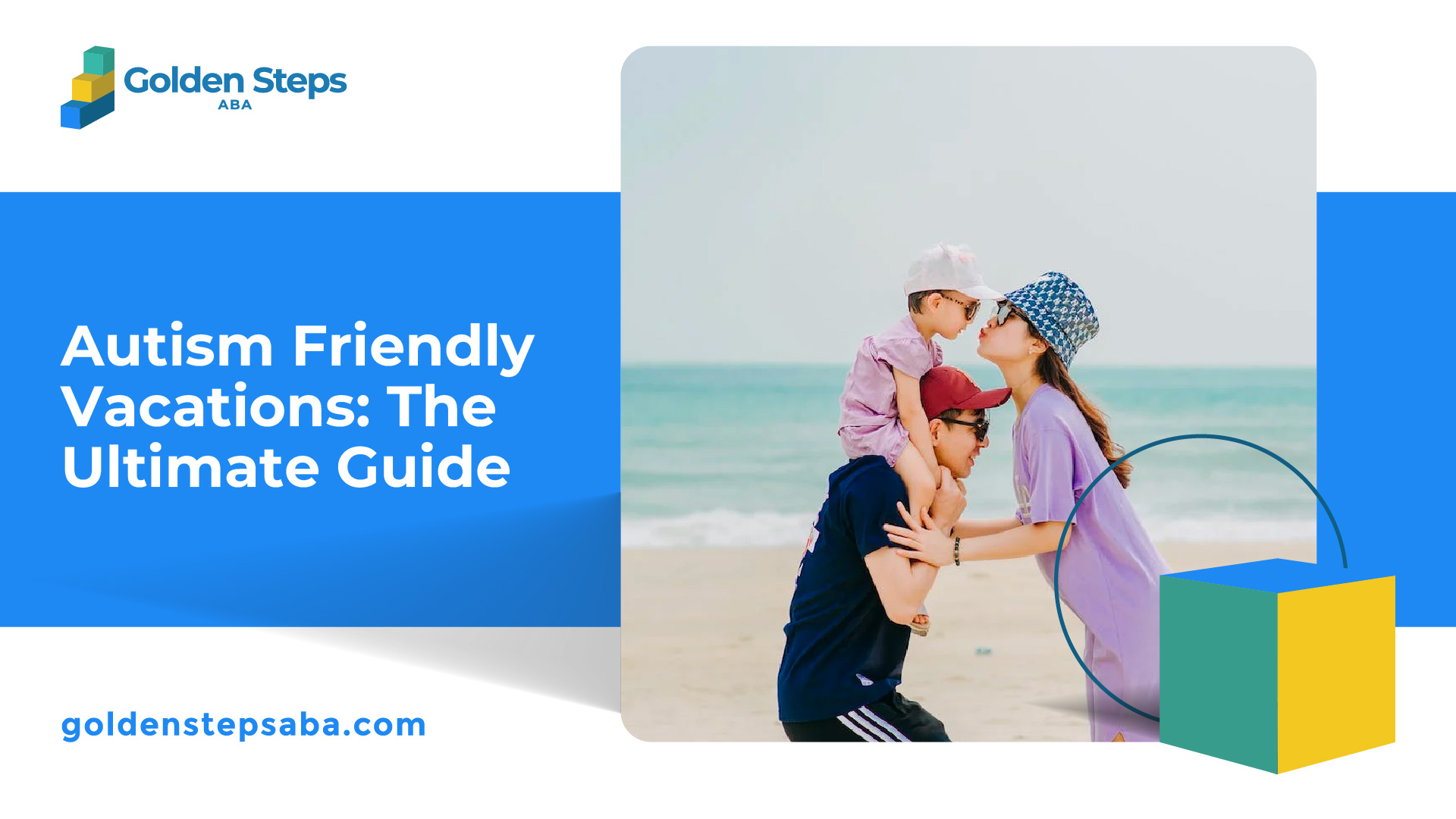
Understanding the Importance of Autism-Friendly Vacations
Autism-friendly vacations are designed to create inclusive and supportive environments where individuals with autism can fully enjoy their travel experiences. These vacations recognize and embrace the diverse sensory, communication, and social needs of individuals on the autism spectrum. By understanding and addressing these unique needs, vacation destinations can provide a safe and welcoming atmosphere for individuals with autism and their families.
Autism-friendly vacations can have numerous benefits. They offer individuals with autism the opportunity to explore new places, engage in enriching activities, and build social skills in a comfortable and understanding environment. Moreover, these vacations provide respite for caregivers, allowing them to relax and enjoy quality time with their loved ones.
Key Considerations for Choosing Autism-Friendly Destinations
When selecting an autism-friendly vacation destination, there are several key considerations to keep in mind. These factors can significantly enhance the overall experience for individuals with autism and their caregivers.
1. Sensory-Friendly Environment : Look for destinations that prioritize sensory-friendly accommodations. These accommodations may include rooms with low lighting, noise reduction features, and access to quiet spaces. Sensory-friendly resorts, theme parks, and hotels are excellent options to consider.
2. Specialized Programs and Activities : Consider destinations that offer specialized programs and activities catering to individuals with autism. These programs may include sensory-friendly shows, guided tours, or interactive experiences designed to accommodate various needs. Autism-friendly museums and cultural centers are examples of destinations that often provide specialized programs and activities.
3. Accessibility and Support Services : Ensure that the chosen destination offers accessibility and support services for individuals with autism. This may include wheelchair accessibility, visual supports, communication boards, and trained staff who are knowledgeable about autism and can provide assistance when needed. Autism-friendly cruises and hotels often provide such services.
By considering these key factors, individuals with autism and their caregivers can find suitable vacation destinations that cater to their unique needs, ensuring a joyful and fulfilling travel experience. Whether it's exploring nature retreats, visiting cultural centers, or venturing into international destinations, there are options available for every preference and interest.
Destinations in the United States
When it comes to autism-friendly vacation destinations in the United States, there are various options that cater to the unique needs and preferences of individuals on the autism spectrum and their families. Below, we will explore three types of destinations that offer inclusive and accommodating experiences: theme parks and resorts, national parks and nature retreats, and museums and cultural centers.
Theme Parks and Resorts
Theme parks and resorts have made significant strides in creating autism-friendly environments that provide enjoyable experiences for individuals with autism. Many theme parks offer sensory-friendly initiatives, such as designated quiet areas, reduced sensory stimulation, and special accommodations to help guests navigate the park comfortably. Some even provide autism-friendly rides and attractions with modified sensory elements.
Similarly, several resorts have implemented autism-friendly practices to ensure a stress-free stay. These accommodations may offer sensory-friendly rooms, visual supports, and trained staff members who understand and cater to the needs of guests on the autism spectrum.

National Parks and Nature Retreats
For families seeking a serene and nature-filled getaway, national parks and nature retreats can be excellent options. These destinations offer vast outdoor spaces where individuals with autism can freely explore and engage with nature. National parks often provide accessible trails, visitor centers with resources, and ranger-led programs that accommodate individuals with diverse abilities.
Nature retreats that cater to individuals with autism may offer specific programs and activities designed to promote sensory engagement and relaxation. These retreats often emphasize the therapeutic benefits of spending time in nature and provide a supportive environment for individuals on the autism spectrum.
Museums and Cultural Centers
Museums and cultural centers across the United States have recognized the importance of inclusivity and accessibility for individuals with autism. Many of these institutions now offer autism-friendly hours, during which sensory stimuli are reduced, and additional resources are provided to enhance the visitor experience. These resources may include visual schedules, social stories, and sensory-friendly exhibits.
Furthermore, some museums and cultural centers have developed specialized programs and events tailored specifically for individuals with autism. These programs aim to create engaging and educational experiences while accommodating the sensory needs and preferences of visitors on the autism spectrum.
While these are just a few examples of autism-friendly vacation destinations in the United States, it's important to note that each destination may have its own unique features and offerings.
When planning a vacation, consider the specific needs and interests of the individual with autism and utilize resources like autism-friendly travel agencies, online communities, and personal recommendations to ensure a successful and enjoyable trip.

International Destinations
For individuals seeking autism-friendly vacation destinations beyond the United States, there are several options available across different continents. Whether you're looking to explore the rich history of Europe, immerse yourself in the vibrant cultures of Asia, or relax on the beautiful beaches of the Caribbean, there are destinations that cater to the needs of individuals with autism and their caregivers.
European Destinations
Europe offers a variety of autism-friendly vacation destinations that combine history, culture, and accessibility. Many European cities have taken steps to create inclusive environments for individuals with autism.
For example, cities like London, England, and Barcelona, Spain, have museums and attractions that offer sensory-friendly experiences, such as quiet hours, guided tours, and visual supports. Additionally, some European countries, including Ireland and Scotland, have autism-friendly initiatives in place, providing resources and support for travelers with autism.
Asian Destinations
Asia also offers a range of destinations that prioritize inclusivity and cater to the unique needs of individuals with autism. Countries like Japan and Singapore have made significant strides in creating autism-friendly environments.
In Japan, there are theme parks and attractions that provide special accommodations, such as quiet rooms and designated staff who are trained to assist individuals with autism. Singapore offers sensory-friendly attractions, including a specially designed Garden for the Senses and sensory-friendly performances.

Caribbean Destinations
The Caribbean is renowned for its stunning beaches and warm hospitality. Several autism-friendly vacation destinations in the Caribbean have made efforts to accommodate the needs of individuals with autism.
The Bahamas, for instance, has resorts that offer autism-friendly amenities, including sensory-friendly rooms and trained staff. Some resorts in Jamaica and the Dominican Republic also provide specialized programs and activities designed to meet the needs of guests with autism.
When considering international destinations, it's important to research and plan ahead to ensure that the chosen location can provide the necessary supports and accommodations for individuals with autism. Websites, online communities, and travel agencies specializing in autism-friendly travel can be valuable resources for finding specific information about destinations, resorts, and attractions.
By exploring the range of international destinations, individuals with autism and their caregivers can find autism-friendly vacation destinations that offer enriching experiences, cultural immersion, and the necessary supports for a successful and enjoyable trip.
Features to Look for in Autism-Friendly Destinations
When it comes to planning an autism-friendly vacation, it's essential to consider the specific features and amenities that can make a destination suitable for individuals on the autism spectrum. Here are some key features to look for when choosing autism-friendly destinations:
Sensory-Friendly Accommodations
One of the most important aspects of an autism-friendly destination is the availability of sensory-friendly accommodations . These accommodations are designed to provide a comfortable and calming environment for individuals with sensory sensitivities. Some features to look for include:
- Noise-reducing rooms : Rooms that are soundproof or located in quieter areas of the hotel/resort.
- Soft lighting : Dimmable lights or the option to control the brightness in the room.
- Sensory-friendly bedding : Hypoallergenic bedding and pillows for those with sensory sensitivities.
- Visual supports : Visual aids such as picture schedules, social stories, or visual timers to help individuals with communication and time management.
Specialized Programs and Activities
Autism-friendly destinations often provide specialized programs and activities that cater to the unique needs and interests of individuals on the autism spectrum. Look for destinations that offer:
- Sensory-friendly attractions : Theme parks, museums, or cultural centers that have designated quiet areas or sensory-friendly exhibits.
- Therapeutic services : Access to on-site therapists, such as speech therapists, occupational therapists, or behavior analysts, who can provide support and guidance during the vacation.
- Adaptive recreation : Activities that are adapted to accommodate individuals with sensory sensitivities, such as sensory-friendly cruises or guided nature walks.
Accessibility and Support Services
In addition to sensory-friendly accommodations and specialized programs, it's important to ensure that the destination offers accessibility and support services for individuals with autism. This includes:
- Accessible transportation : Access to transportation options that accommodate individuals with mobility challenges, such as wheelchair-accessible vehicles or shuttle services.
- Supportive staff : Trained staff members who are knowledgeable about autism and can provide assistance and support when needed.
- Communication aids : Access to communication tools and resources, such as visual schedules or communication boards, to facilitate communication between guests and staff.
Additionally, personal recommendations and reviews from other individuals with autism and their caregivers can provide valuable insights into the suitability of a destination.
By considering these key features, you can select an autism-friendly destination that provides a safe, inclusive, and enjoyable vacation experience for individuals on the autism spectrum. Remember to plan ahead, communicate your specific needs and preferences, and advocate for the support and accommodations necessary to make your vacation a memorable one.
Planning Tips for a Successful Autism-Friendly Vacation
Embarking on an autism-friendly vacation requires careful planning to ensure a smooth and enjoyable experience for individuals with autism and their caregivers. By following these planning tips, you can help create a vacation that caters to the unique needs of your loved one.
Preparing Ahead of Time
When planning an autism-friendly vacation, it's important to start preparations well in advance. Begin by researching and selecting destinations that offer autism-friendly accommodations and activities.
Before the trip, gather information about the destination's facilities, services, and any specific amenities they provide for individuals with autism. Check if they have specialized programs, such as autism-friendly cruises or resorts that offer sensory-friendly environments and trained staff.
Additionally, consider creating a travel itinerary that allows for flexibility and downtime to accommodate the specific needs of your loved one. This can help minimize stress and provide a sense of security during the trip.
Communication and Advocacy
Effective communication and advocacy are crucial elements when planning an autism-friendly vacation. Prior to your trip, inform the staff at your chosen destination about your loved one's specific needs and requirements. This will help them better understand and accommodate those needs, creating a more inclusive and comfortable environment.
Furthermore, it's important to equip yourself with communication tools that can aid in conveying your loved one's needs and preferences. These can include visual schedules, social stories, or communication cards. By using these tools, you can enhance communication and facilitate a better understanding between your loved one and the staff at your vacation destination.
Creating a Visual Schedule
For many individuals with autism, having a clear routine and visual cues can greatly enhance their vacation experience. Creating a visual schedule can help your loved one understand and anticipate the activities and events throughout the trip. This can be especially useful when visiting theme parks, museums, or other attractions with scheduled activities.
A visual schedule can be created using pictures, symbols, or written descriptions of each activity. Include details such as the time, location, and duration of each event. By following the visual schedule, your loved one can have a sense of predictability and structure, reducing anxiety and promoting a more enjoyable vacation experience.
Remember, the key to a successful autism-friendly vacation is thoughtful planning and consideration of your loved one's unique needs. By preparing ahead of time, communicating effectively, and providing visual supports, you can create a vacation that unlocks joy and creates lasting memories.
Resources for Autism-Friendly Travel
Planning an autism-friendly vacation requires access to reliable resources and information. Fortunately, there are various sources available to assist individuals with autism and their caregivers in finding the best options for their travel needs. Here are three valuable resources to consider:

Online Communities and Forums
Online communities and forums provide a platform for individuals to connect, share experiences, and exchange information about autism-friendly travel. These communities often consist of fellow travelers, caregivers, and experts who can offer valuable insights and recommendations. Participating in discussions or asking questions in these online spaces can provide a wealth of firsthand knowledge and support.
Some notable online communities and forums for autism-friendly travel include Autism Friendly Cruises, Autism Friendly Resorts, Autism Friendly Theme Parks, and Autism Friendly Hotels. These platforms allow individuals to connect with others who have similar experiences, share tips, and discover new destinations that cater to the unique needs of individuals with autism.
Travel Agencies and Organizations
Travel agencies and organizations specializing in autism-friendly travel can be invaluable resources for planning a vacation. These agencies are equipped with the knowledge and expertise to assist in finding suitable destinations, accommodations, and activities that cater to the specific needs of individuals with autism. They often have established relationships with various service providers and can help ensure a smooth and enjoyable travel experience.
When seeking assistance from a travel agency or organization, it's important to inquire about their experience in catering to individuals with autism. Ask for references, reviews, and testimonials to ensure their expertise aligns with your specific requirements. Remember, each individual with autism is unique, so it's crucial to work with professionals who understand and respect these differences.
Personal Recommendations and Reviews
Personal recommendations and reviews from individuals who have already experienced autism-friendly travel can provide valuable insights and guidance. These firsthand accounts offer an authentic perspective on the suitability of destinations, accommodations, and activities for individuals with autism. Social media platforms, travel blogs, and review websites are great sources to find these personal recommendations and reviews.
Engaging with the autism community on social media platforms can help you connect with individuals who have firsthand experience in autism-friendly travel.
Many individuals and families are willing to share their recommendations, tips, and insights based on their own travel experiences. Additionally, travel blogs and review websites often feature detailed accounts and reviews from travelers who have explored autism-friendly destinations.
By utilizing these resources, individuals with autism and their caregivers can access valuable information, recommendations, and support to plan a successful and enjoyable autism-friendly vacation. Remember, it's crucial to tailor the travel experience to meet the specific needs of the individual with autism, ensuring a comfortable and inclusive journey.
An autism-friendly vacation may require more planning and preparation, but it can be a rewarding and enjoyable experience for the whole family. By choosing the right destination, preparing your child, and following these tips, you can ensure that your vacation is stress-free and memorable for all the right reasons.
- https://www.appliedbehavioranalysisprograms.com/best-autism-friendly-vacation
- https://familyvacationist.com/autism-friendly-vacations-for-families/
- https://www.travelandleisure.com/certified-autism-resorts-for-nuerodiverse-travelers
- https://thepointsguy.com/guide/autism-friendly-vacations/
- https://autismtravel.com/
Continue Reading
- EN - English
- PT - Portuguese
- ES - Spanish
- How it works
- Become a Host
- Download the app
Top Destinations
- United States
- United Kingdom
What type of experience are you looking for?
- Non-Profit School
- Permaculture project
- Eco Village
- Holistic Center
- Guest House
- How Worldpackers works

Learn from the most experienced travelers of the community
Traveling with worldpackers, planning and budgeting for travel, make a living while traveling as a lifestyle, travel with worldpackers.
- Using Worldpackers
- Work exchange
- Social impact
- Plan your trip
- Women traveling
- Budget travel
- Solo travel
- Language learning
- Travel tips
- Get inspired
- Digital nomads
- Travel jobs
- Personal development
- Responsible travel
- Connect with nature
Top destinations
- South America
- Central America
- North America
- More destinations
- WP Life WP Life
- Exclusive discounts Discounts
How to travel with autism in an independent and safe way
With some organization, traveling with autism can be possible, safe and comfortable. Let me help you with this experience by telling you my story.
Leonie AspieGirl
Jul 03, 2023
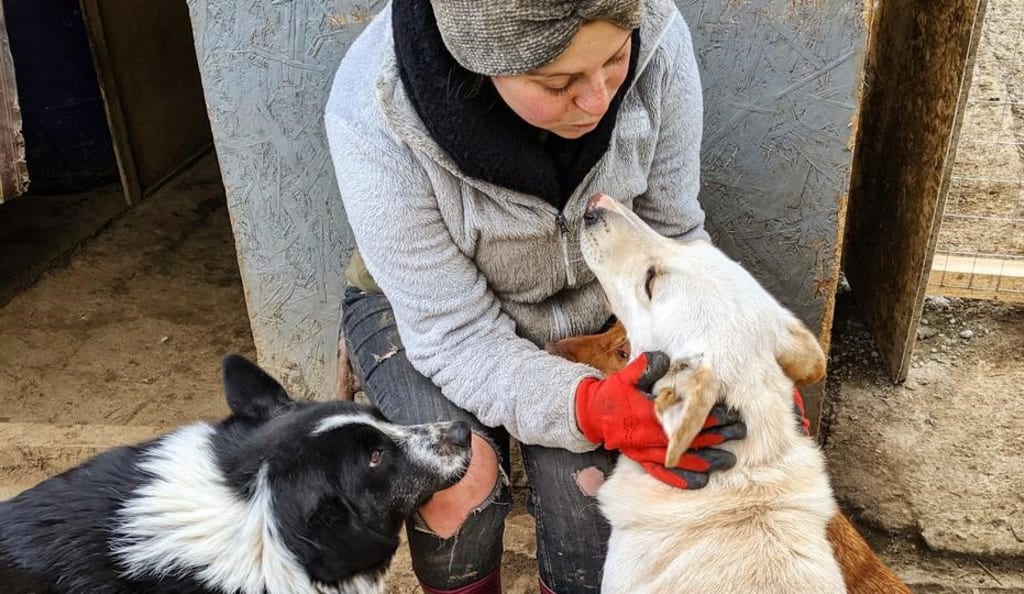
Travel with autism can be challenging - you need to know how to deal with some issues that will come up. But once you nail it, it's a big life-changing experience.
My name is Leonie, I was diagnosed with Asperger’s syndrome in 2016. As an autistic person , traveling is a kind of therapy for me. Changing the environment and interacting with different people has a positive effect on my self-confidence and communication skills.
Nonetheless, travel can be overwhelming for autistic people. To make the expecience easier, it is important to understand what autism is and how to avoid common triggers.

Autism, or Autism Spectrum Disorder (ASD), refers to many conditions that involve challenges with social skills, repetitive behaviors, speech and nonverbal communication. Knowing that, the first step is to identify what kinds of stress can cause us problems.
Those are some potential triggers that can bother someone with autism:
- Sensory overload
- Disorganization
- Being around large groups
- Changes in routine
- Be unfamiliar with surroundings
- Long waits at airports
- Security checkpoints
- Onboarding
My autism adventure travel with Worldpackers
I wanted to travel around the world. I wanted to go from place to place and from country to country. I wanted to visit places that are not on the general itinerary of an autism travel agency , but have something special for me.
That's how I started traveling as a volunteer with Worldpackers . It gave me the opportunity of self-development and showed me that traveling alone is not so hard and not so lonely. On the contrary, I met some cool people on the way.
If you want to know how it works, watch the video below and see this top 10 coolest Worldpackers experiences to try right now .
3 tips to travel with autism
1. plan your accommodation.
As a person with autism, it’s important to consider what accommodations I need. For example, some people are sensitive to loud noises or bright lights, which can be common in busy hotels. Ask for a quiet room away from the elevator and stairs if it is possible.
Also, take into account the place of your accommodation, if it is downtown or in the suburb.
If it’s downtown, it's a good idea to bring noise-cancelling headphones or earbuds to sleep, or even consider staying a bit out. If you’re staying in the suburb, take note of your best route to and from town.
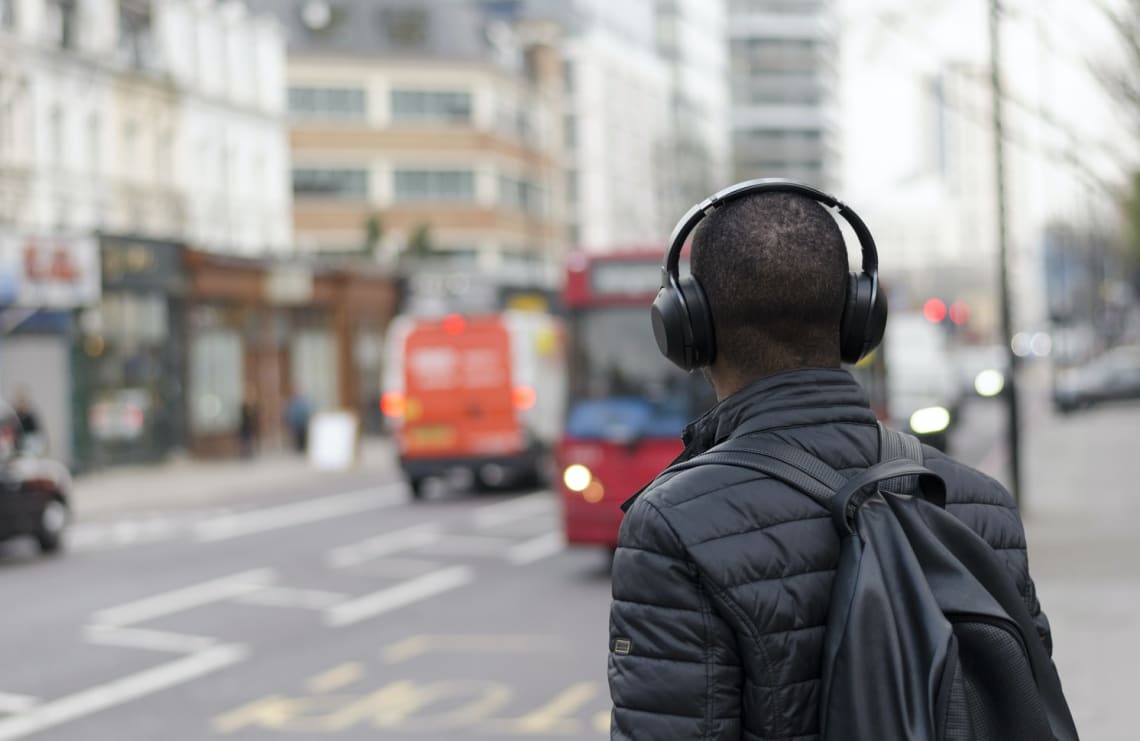
I can't stand loud noises, people talk nearly shouting and it makes me afraid and my brain seems to scream inside my head. So I always try to find a place where there are not many people or I can get a room for myself.
2. Keep all you need in hand
The backpack is one of the most important things when you travel. It's our home for a while, so we need to take care of it and find what’s comfortable for us. And be organized!
3. Write a schedule
I always try to write a schedule in advance because surprises confuse me and I lose the ability to think.
I prefer to get to the airport a few hours before the flight and wait until the last minute to avoid wasting time searching from gate to gate.
I remember while visiting a friend in Freiburg, Germany, we decided to go to Basel, Switzerland by train. We left the house 5 minutes before the train left, because my friend assured me that we would catch up with the train. It took us exactly 5 minutes walking to the train station and we almost jumped on the train. Since then, I always come 20 minutes ahead.
Traveling with autism and alone
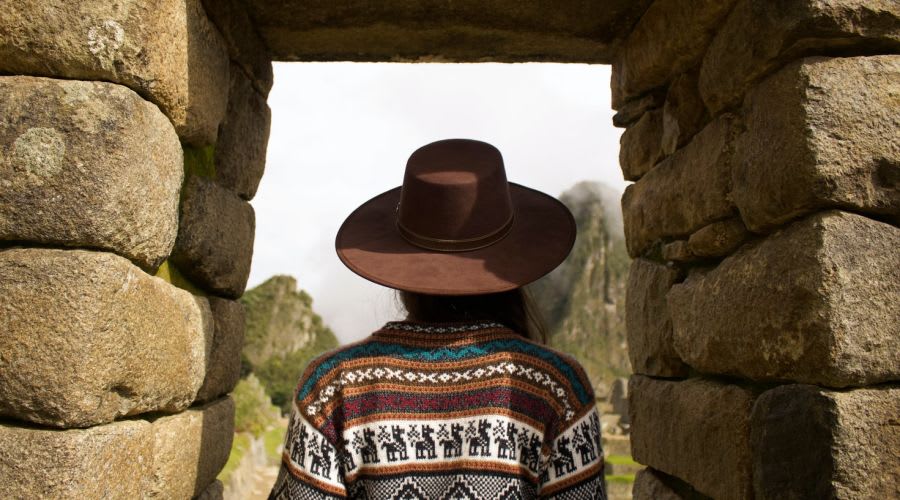
I think everyone should travel alone at least once in a lifetime. It gives you a deeper understanding of yourself and makes you more independent. You will become fearless and start doing things that you never thought you could do before.
I really like travelling and I have been around the world. It is a great opportunity to learn about different cultures and ways of life.
So just do it. We live just once. We don't live just for work, sometimes we need to go crazy and do unusual things. Your fear of traveling shouldn't stop you from taking the plunge!
So let's do it, with no limits.
And yes, travel with autism is possible.
Join the community!
Create a free Worldpackers account to discover volunteer experiences perfect for you and get access to exclusive travel discounts!
Leonie Wolfskin
Passion of travelling. Solo female traveler. Love life and travel.
Be part of the Worldpackers Community
Already have an account, are you a host, leave your comment here.
Write here your questions and greetings to the author
Oct 16, 2021
Amazing! This inspired me a lot, thanks for sharing this with us
Leonie (Author)
Oct 17, 2021
Happy to hear that, you're welcome 🥰
Oct 18, 2021
That's a real self-awareness journey. As Leandro said, thank you for sharing it with us!
Jan 21, 2022
You made very good points. I didn't know about these triggers, and your tips were great!
Jun 03, 2022
[email protected]
Aug 21, 2022
The best ❤️
Amazing! Thanks for sharing! I'm still in the process of being diagnosed, but when I started traveling I didn't know! So communication and constant changes in my routine were a challenge at first, but I developed a lot and also gained self-confidence! To avoid common triggers I like to identify the quiet and safe places to go to "recharge" and earbuds help a lot (:
Oct 24, 2021
How are you
Nov 08, 2021
wow, that is really interesting, i'd like to travel from my country, then try to go to malaysia or thailand
Mar 11, 2022
Apr 03, 2022
Did you mention that you have autism on your profile prior to applying? I don’t have autism but I do have ADHD which ik share some symptoms, idk whether or not to mention it on my profile as it could be a deterrent.
May 10, 2022
Love how inclusive this is🤍
Thanks for sharing 🙏
More about this topic

6 reasons why now is the best time to plan for big travel goals
How I lived in paradise and landed my dream job through volunteering with Worldpackers
20 inspirational places to travel
How do Worldpackers trips work?
As a member, you can contact as many hosts and travel safely as many times as you want.
Choose your plan to travel with Worldpackers as many times as you like.
Complete your profile, watch the video lessons in the Academy, and earn certificates to stand out to hosts.
Apply to as many positions as you like, and get in contact with our verified hosts.
If a host thinks you’re a good fit for their position, they’ll pre-approve you.
Get your documents and tickets ready for your volunteer trip.
Confirm your trip to enjoy all of the safety of Worldpackers.
Have a transformative experience and make a positive impact on the world.
If anything doesn’t go as planned with a host, count on the WP Safeguard and our highly responsive support team!
After volunteering, you and your host exchange reviews.
With positive reviews, you’ll stand out to hosts and get even more benefits.

Autism travel club presents
THE autism travelER Mobile app
*Previously known as Champion Autism Network’s CAN Card
Find nearby Autism Ready travel destinations, hotels, restaurants and attractions! Registered club members have discounts and special offers at selected locations

Create meaningful memories
AUTISM-FRIENDLY VACATIONS AND ADVENTURES
Everyone deserves the enriching and rewarding experience of travel and playful adventures. Your Autism Travel Club membership makes it easier to plan and enjoy your family fun with access to autism-ready businesses who will meet your needs and show you a great time!
Membership Application
- ATC Digital Card Membership — $ 10.00 / year
If you have shopped with us before, please enter your details below. If you are a new customer, please proceed to the Billing section.
Username or email *
Password *
Remember me Login
Lost your password?
If you have a coupon code, please apply it below.
Apply coupon
Billing details
First name *
Last name *
Country / Region * Select a country / region… Afghanistan Åland Islands Albania Algeria American Samoa Andorra Angola Anguilla Antarctica Antigua and Barbuda Argentina Armenia Aruba Australia Austria Azerbaijan Bahamas Bahrain Bangladesh Barbados Belarus Belau Belgium Belize Benin Bermuda Bhutan Bolivia Bonaire, Saint Eustatius and Saba Bosnia and Herzegovina Botswana Bouvet Island Brazil British Indian Ocean Territory Brunei Bulgaria Burkina Faso Burundi Cambodia Cameroon Canada Cape Verde Cayman Islands Central African Republic Chad Chile China Christmas Island Cocos (Keeling) Islands Colombia Comoros Congo (Brazzaville) Congo (Kinshasa) Cook Islands Costa Rica Croatia Cuba Curaçao Cyprus Czech Republic Denmark Djibouti Dominica Dominican Republic Ecuador Egypt El Salvador Equatorial Guinea Eritrea Estonia Eswatini Ethiopia Falkland Islands Faroe Islands Fiji Finland France French Guiana French Polynesia French Southern Territories Gabon Gambia Georgia Germany Ghana Gibraltar Greece Greenland Grenada Guadeloupe Guam Guatemala Guernsey Guinea Guinea-Bissau Guyana Haiti Heard Island and McDonald Islands Honduras Hong Kong Hungary Iceland India Indonesia Iran Iraq Ireland Isle of Man Israel Italy Ivory Coast Jamaica Japan Jersey Jordan Kazakhstan Kenya Kiribati Kuwait Kyrgyzstan Laos Latvia Lebanon Lesotho Liberia Libya Liechtenstein Lithuania Luxembourg Macao Madagascar Malawi Malaysia Maldives Mali Malta Marshall Islands Martinique Mauritania Mauritius Mayotte Mexico Micronesia Moldova Monaco Mongolia Montenegro Montserrat Morocco Mozambique Myanmar Namibia Nauru Nepal Netherlands New Caledonia New Zealand Nicaragua Niger Nigeria Niue Norfolk Island North Korea North Macedonia Northern Mariana Islands Norway Oman Pakistan Palestinian Territory Panama Papua New Guinea Paraguay Peru Philippines Pitcairn Poland Portugal Puerto Rico Qatar Reunion Romania Russia Rwanda São Tomé and Príncipe Saint Barthélemy Saint Helena Saint Kitts and Nevis Saint Lucia Saint Martin (Dutch part) Saint Martin (French part) Saint Pierre and Miquelon Saint Vincent and the Grenadines Samoa San Marino Saudi Arabia Senegal Serbia Seychelles Sierra Leone Singapore Slovakia Slovenia Solomon Islands Somalia South Africa South Georgia/Sandwich Islands South Korea South Sudan Spain Sri Lanka Sudan Suriname Svalbard and Jan Mayen Sweden Switzerland Syria Taiwan Tajikistan Tanzania Thailand Timor-Leste Togo Tokelau Tonga Trinidad and Tobago Tunisia Turkey Turkmenistan Turks and Caicos Islands Tuvalu Uganda Ukraine United Arab Emirates United Kingdom (UK) United States (US) United States (US) Minor Outlying Islands Uruguay Uzbekistan Vanuatu Vatican Venezuela Vietnam Virgin Islands (British) Virgin Islands (US) Wallis and Futuna Western Sahara Yemen Zambia Zimbabwe Update country / region
Street address *
Apartment, suite, unit, etc. (optional)
Town / City *
State * Select an option… Alabama Alaska Arizona Arkansas California Colorado Connecticut Delaware District Of Columbia Florida Georgia Hawaii Idaho Illinois Indiana Iowa Kansas Kentucky Louisiana Maine Maryland Massachusetts Michigan Minnesota Mississippi Missouri Montana Nebraska Nevada New Hampshire New Jersey New Mexico New York North Carolina North Dakota Ohio Oklahoma Oregon Pennsylvania Rhode Island South Carolina South Dakota Tennessee Texas Utah Vermont Virginia Washington West Virginia Wisconsin Wyoming Armed Forces (AA) Armed Forces (AE) Armed Forces (AP)
ZIP Code *
Phone *
Email address *
Keep me up to date on news and exclusive offers (optional)
Create account password *
Pay with your credit card via Stripe.
- Use a new payment method
By clicking Bank Payment, you authorize AutismTravel.Club to debit the bank account you select for any amount owed for charges arising from your use of AutismTravel.Club services and/or purchase of products from AutismTravel.Club, pursuant to AutismTravel.Club website and terms, until this authorization is revoked. You may amend or cancel this authorization at any time by providing notice to AutismTravel.Club with 30 (thirty) days notice.
OF the club program
- Connect with autism-friendly environments and experiences
- Rest assured that ATC participating businesses have received autism-readiness training
- Access special offers and discounts from ATC participating businesses
- Create your personal profile for concierge-style recommendations
- Save time with online check-in
- Help other families by completing a simple follow-up review of your experience
WHere are you going next?
Explore our autism-friendly locations where you can plan your next vacation
And we're constantly adding many more. Are you representing a business or interesting in becoming an affiliate of ATC?

Download Autism Traveler Mobile App
Finding Autism-Ready Locations Has Never Been Easier! Mobile App Now Available on iOS and Android Devices

Ambassador Portal
Login to access your account
Business Login
Login to access your listing and learning reports

- Get started
Traveling with Autism: Tips for Managing Sensory Issues
With some careful planning and preparation, you can help make your trip as smooth as possible. Here are some tips for managing sensory issues while traveling:

For individuals with autism, traveling can present unique challenges due to sensory issues . Understanding these issues and their impact is essential for creating a positive travel experience. In this section, we will explore the sensory issues in autism and discuss the challenges that can arise while traveling.

Understanding Sensory Issues in Autism
Autism is a neurodevelopmental disorder that affects how individuals process and respond to sensory information from their environment. People with autism may experience sensory sensitivities or sensory-seeking behaviors. Sensory sensitivities can manifest in various ways, such as sensitivity to loud noises, bright lights, or crowded spaces. On the other hand, sensory-seeking behaviors involve seeking out certain sensory experiences, like spinning or touching different textures.
It's important to recognize that sensory issues can vary greatly among individuals with autism. What may be overwhelming for one person may not affect another in the same way. Being aware of the specific sensory sensitivities of the individual you are traveling with is crucial for planning a successful trip.
Challenges of Traveling with Sensory Issues
Traveling can introduce a range of new and unfamiliar sensory experiences, which can be overwhelming for individuals with autism. Some common challenges include:
- Noise : Airports, train stations, and crowded tourist attractions can be noisy, causing distress for individuals with sensory sensitivities.
- Lights : Bright lights in airports, hotels, or theme parks can be overwhelming for those with sensitivity to light.
- Crowds : Large crowds and confined spaces can trigger anxiety and sensory overload.
- Unfamiliar Environments : New smells, textures, and unfamiliar surroundings can be disorienting for individuals with autism.
These challenges can make travel stressful for both the individual with autism and their families. However, with careful planning and preparation, it is possible to manage these sensory issues and create a positive travel experience.
By understanding the sensory issues commonly associated with autism and recognizing the challenges they can present while traveling, parents and caregivers can take proactive steps to address these concerns. With proper preparation and the implementation of sensory-friendly strategies, individuals with autism can enjoy the wonders of travel while managing their sensory needs.
Preparing for Travel
When traveling with autism, thorough preparation can make a significant difference in managing sensory issues and ensuring a smoother travel experience. This section discusses essential steps to take before embarking on your journey, including researching and planning ahead, creating a visual schedule, and packing sensory-friendly items.
Researching and Planning Ahead
Before your trip, it is crucial to research and plan ahead to minimize potential stressors and ensure a more predictable travel experience. Start by familiarizing yourself with the destination and transportation options available.
Consider reaching out to travel agencies or organizations that specialize in autism travel support . They can offer guidance, support, and even customized itineraries to cater to the unique needs of individuals with autism. These professionals are well-equipped to provide valuable advice on accommodations, attractions, and transportation options that can help minimize sensory overload and maximize enjoyment.
Creating a Visual Schedule
Visual schedules are an effective tool for individuals with autism to understand and anticipate their daily activities. Creating a visual schedule for travel can help alleviate anxiety and provide a sense of structure and predictability. Use visual aids, such as pictures, symbols, or written words, to represent each step of the journey, including departure, transportation, accommodation, and activities.
Break down the travel itinerary into manageable segments and display the visual schedule in a format that suits your child's needs. This can be a portable visual schedule book, a laminated sheet, or even a digital tablet. Review the schedule with your child before the trip, emphasizing the sequence of events and discussing any potential changes that might occur.
Packing Sensory-Friendly Items
Packing appropriate sensory-friendly items can help create a more comfortable and familiar environment during travel. Consider including items that your child finds calming or comforting, such as noise-canceling headphones, a weighted blanket, or fidget toys. These items can provide a sense of security and serve as effective coping mechanisms in overwhelming situations.
Additionally, pack essential sensory-related items like sunglasses, earplugs, or a favorite comfort object. These familiar items can help your child feel at ease and reduce sensory overload in different environments. Remember, it's essential to involve your child in the packing process, allowing them to choose items they find soothing or enjoyable.
By researching and planning ahead, creating a visual schedule, and packing sensory-friendly items, you can significantly enhance your child's travel experience. These strategies provide structure, predictability, and comfort, ultimately reducing anxiety and sensory challenges. In the next section, we will explore strategies for navigating transportation while managing sensory overload.
Navigating Transportation
When it comes to traveling with autism, navigating transportation can be a significant challenge due to sensory issues. However, with careful planning and preparation, it is possible to create a more comfortable travel experience. In this section, we will explore some tips for choosing the right mode of transportation, creating a comfortable travel environment, and managing sensory overload during travel.
Choosing the Right Mode of Transportation
Selecting the appropriate mode of transportation is crucial when traveling with autism. Consider the specific needs and preferences of the individual with autism to determine which option will be the most suitable. Some individuals may feel more comfortable and at ease in a car, while others may prefer trains or planes.
When choosing a mode of transportation, it's important to consider factors such as the length of the journey, the individual's sensory sensitivities, and any additional accommodations that may be required. For example, if flying, it may be beneficial to inform the airline in advance to request any necessary accommodations, such as pre-boarding or seating preferences.
Creating a Comfortable Travel Environment
To create a comfortable travel environment, it's essential to bring familiar and sensory-friendly items. These could include noise-canceling headphones to reduce auditory input, a favorite blanket or stuffed animal for comfort, or a weighted blanket to provide a calming effect. By surrounding the individual with familiar and soothing items, it can help them feel more at ease during the journey.
Additionally, consider creating a designated space within the travel environment that is conducive to relaxation. This could involve selecting seating that allows for more personal space or bringing a portable sensory tent where the individual can retreat when feeling overwhelmed. By proactively creating a comfortable and sensory-friendly travel environment, it can significantly alleviate stress and anxiety.

Managing Sensory Overload during Travel
Sensory overload is a common challenge when traveling with autism, as unfamiliar environments can be overwhelming. To manage sensory overload, it can be helpful to incorporate calming techniques and strategies. This could involve using noise-canceling headphones or earplugs to reduce auditory stimuli, wearing sunglasses to minimize visual stimulation, or carrying a weighted lap pad or fidget toys for tactile input.
In addition to these sensory tools, taking regular sensory breaks during the journey can provide much-needed respite. This could involve finding quiet spaces, such as airport lounges or designated rest areas, where the individual can relax and regroup. Implementing these strategies can help prevent sensory overload and make the travel experience more manageable.
By considering the mode of transportation, creating a comfortable travel environment, and implementing strategies to manage sensory overload, it is possible to make traveling with autism a smoother experience. Remember to plan ahead, communicate any specific needs or accommodations, and prioritize the well-being of the individual with autism throughout the journey.
Accommodations and Destinations
When traveling with autism, selecting the right accommodations and destinations can greatly contribute to a successful and enjoyable trip. Consider the following tips when making these important decisions.
Selecting Autism-Friendly Accommodations
Choosing accommodations that are autism-friendly can make a significant difference in your travel experience. Look for hotels, resorts, or vacation rentals that prioritize sensory considerations and provide a supportive environment. Some features to consider include:
- Quiet rooms : Seek accommodations that offer quiet rooms away from busy areas or provide soundproofing to minimize external noise.
- Sensory-friendly rooms : Some hotels offer sensory-friendly rooms with dimmable lights, blackout curtains, and soft bedding to create a soothing atmosphere.
- Specialized amenities : Inquire about accommodations that provide sensory-friendly items such as weighted blankets, noise-canceling headphones, or fidget toys.
- Flexible meal options : Opt for accommodations that offer a variety of dietary options to accommodate specific preferences or restrictions.
Researching and booking autism-friendly accommodations in advance will help ensure a comfortable stay for both you and your loved one with autism.
Researching Autism-Friendly Destinations
When planning your trip, consider destinations that are known for being autism-friendly. Some locations offer attractions and activities that are accommodating to individuals with sensory sensitivities and other autism-related needs. Here are some factors to consider:
- Quiet and calm environments : Look for destinations that offer serene and tranquil surroundings, such as nature reserves, parks, or secluded beaches.
- Sensory-friendly attractions : Research attractions that provide sensory-friendly experiences, such as museums with quiet hours, theme parks with special accommodations, or theaters with sensory-friendly performances.
- Supportive community : Seek out destinations where the local community is understanding and supportive of individuals with autism, ensuring a welcoming environment.
By researching autism-friendly destinations in advance, you can tailor your travel plans to suit the specific needs and preferences of your family.
Communicating with Staff and Service Providers
Before your trip, it's essential to communicate with the staff and service providers at your chosen accommodations and destinations. Inform them about your loved one's specific sensory needs and any accommodations or support they may require. This proactive communication can help ensure a smooth and understanding experience. Consider the following steps:
- Contact accommodations in advance : Reach out to the accommodations via email or phone to discuss your specific requirements and confirm that they can meet your needs. Inquire about any special arrangements or accommodations they can provide.
- Notify attractions and venues : If you plan to visit specific attractions or venues, contact them ahead of time to inquire about any available accommodations for individuals with autism. This way, you can plan your visits accordingly.
- Provide necessary documentation : If your loved one requires any special accommodations or support, provide relevant documentation, such as a doctor's note or an autism diagnosis, to ensure that your requests are taken seriously.
Open and transparent communication with staff and service providers will help create a supportive environment and ensure that your loved one's needs are met during your travels.
By carefully selecting autism-friendly accommodations and destinations, and effectively communicating your needs to staff and service providers, you can create a travel experience that is both comfortable and enjoyable for your loved one with autism.

Strategies for Successful Travel
When traveling with autism, implementing effective strategies can greatly contribute to a smoother and more enjoyable experience. Here are some strategies to consider:
Using Social Stories and Visual Supports
Social stories and visual supports are valuable tools for individuals with autism. These resources provide clear and concise explanations of various situations and can help individuals understand what to expect during their travel journey.
Social stories can be tailored to specific travel scenarios, such as going through airport security or staying in a hotel. Visual supports, such as schedules, maps, and pictorial guides, can provide visual cues and enhance understanding. These strategies can reduce anxiety and uncertainty, allowing individuals to navigate new environments more confidently.
Implementing Sensory Breaks and Calming Techniques
Traveling can be overwhelming for individuals with sensory sensitivities. Implementing sensory breaks throughout the journey can provide much-needed relief.
Identify quiet and calm spaces where individuals can retreat to relax and regroup. Packing sensory tools like noise-canceling headphones, fidget toys, or weighted blankets can also help manage sensory overload. Additionally, teaching and practicing calming techniques, such as deep breathing exercises or mindfulness techniques, can be beneficial in reducing anxiety and promoting relaxation.
Maintaining Routines and Familiarity
Maintaining routines and incorporating familiar elements can bring a sense of comfort and stability during travel. Consistency in meal times, bedtime routines, and engaging in familiar activities can help individuals feel more at ease in unfamiliar environments.
Bringing along familiar items, such as favorite toys or books, can provide a sense of security and familiarity. It's also helpful to plan activities or outings that align with the individual's interests and preferences, as this can make the travel experience more enjoyable. By maintaining routines and incorporating familiar elements, individuals with autism can feel more grounded and supported throughout their journey.
By implementing these strategies, parents and caregivers can enhance the travel experience for individuals with autism. Remember, each individual is unique, so it's important to tailor these strategies to the specific needs and preferences of the individual. With proper preparation and support, traveling with autism can be a positive and enriching experience for everyone involved.
Tips for a Smooth Travel Experience
Traveling with autism requires careful planning and consideration to ensure a smooth and comfortable experience. Here are some tips to help manage sensory issues and make the journey more enjoyable for everyone involved.
Preparing for Security Checks and Customs
Security checks and customs procedures can be overwhelming for individuals with autism due to the unfamiliarity and sensory stimuli involved. To prepare for these situations:
- Research and communicate : Familiarize yourself with the security and customs procedures at the airports or other transportation hubs you will be using. Reach out to the relevant authorities or airlines to inquire about any accommodations or support they can provide for individuals with autism.
- Prepare visual supports : Create visual schedules or social stories to help your loved one understand the sequence of events during security checks and customs. Include information about what to expect, such as removing items from pockets or going through metal detectors. These visual supports can help reduce anxiety and provide a sense of predictability.
Managing Transitions and Unfamiliar Environments
Transitions and unfamiliar environments can be particularly challenging for individuals with autism. To help manage these situations:
- Plan for transitions : Prepare your loved one for transitions between different modes of transportation or locations. Use visual schedules or timers to provide a clear understanding of when transitions will occur. Gradually introduce new environments or activities to help them acclimate to changes.
- Create familiarity : Bring along familiar items, such as favorite toys or comfort objects, to provide a sense of familiarity in unfamiliar environments. This can help reduce anxiety and provide a source of comfort and security.
Building in Downtime and Self-Care
Traveling can be tiring for individuals with autism, so it's important to build in downtime and self-care opportunities:
- Schedule breaks : Plan regular breaks throughout the journey to allow for rest and relaxation. Find quiet areas or designated sensory rooms at airports or other travel hubs where your loved one can take a break from the noise and stimulation.
- Engage in calming activities : Encourage your loved one to engage in calming activities during downtime, such as listening to music, reading a book, or engaging in a preferred sensory activity. These activities can help regulate sensory input and provide a sense of calm.
Remember, every individual with autism is unique, so it's important to tailor these tips to meet their specific needs. By preparing for security checks and customs, managing transitions and unfamiliar environments, and building in downtime and self-care, you can help create a smoother travel experience for your loved one.
Traveling with autism can be challenging, but with some careful planning and preparation, you can help manage your sensory issues and make your trip as enjoyable as possible. Remember to plan ahead, manage noise, light, and smells, and choose accommodations that can accommodate your needs. With these tips, you'll be able to focus on the fun and excitement of your trip!
- https://www.jcfs.org/blog/come-fly-me-travel-tips-children-autism-spectrum-disorder
- https://behavioral-innovations.com/managing-sensory-overload-airplanes-children-with-autism/
- https://childmind.org/article/tips-for-going-places-with-sensory-challenged-kids/
Steven Zauderer
CEO of CrossRiverTherapy - a national ABA therapy company based in the USA.
Table of Contents
More autism articles.
Autism Travel Guide
Travelling is dear to many an American. The average national total spending amounts to $644.9 billion (only leisure/pleasure travel). Trips ranged from slipping away for a weekend to enjoying a month long vacation with family.
Table of Contents
- 1 Travelling for Parents having Children with Autism
- 2.1 Choosing the Right Destination – Starting with Smaller Trips
- 2.2.1 Prefer Nature Trips above the Rest
- 2.2.2 Theme Parks for the Sensory Seekers
- 2.3 What to Pack before Travelling with a Child having Autism
- 3 Tips During your Travel with an Autistic Child
- 4 Coping with Stressful situations while Travelling
- 5 Do remember
Travelling for Parents having Children with Autism
Travelling – unless work is making you – takes away the stress of everyday life, offering a break from set routines. Staying bogged down is a bad idea. But there are families who get anxious at the very mention of it. These families have one or more children affected with Autism Spectrum Disorder . Travelling doesn’t evoke eager anticipation in them, for obvious reasons.
NOTE : Currently, 1 out of every 68 children is born with autism. In recent decades, Autism prevalence is on a rise..
Tips to Travel with a Child Having Autism
It’s easier than you think to accommodate a child with Autism into your travel plans. They can be managed in a much less stressful way than what’s getting you anxious. There are resources to help you enjoy a fun-filled family vacation. These resources can help you to choose appropriately the perfect hideaway, essential stuffs to carry and strategies that can help you plan the perfect travel. Above all, you travel experience should add to the overall health and well being of your family, including your child with Autism ; that’s must for epic trips.
Choosing the Right Destination – Starting with Smaller Trips
Good memories depend upon it. You must have insights on how to narrow down on the best spot. The start should be simple.
If it’s the first trip for your child, long flight hours would probably be not the best way towards establishing a new trend within the family. Deciding on the destination needs considering the distance first (therefore, the total travel time), which will be instrumental in getting an autistic child accustomed to a plane trip.
Or, it could be an extended car ride; or, by train. It simplifies things to a great deal and you can cut your trip short as per need.
Consider you Child’s Needs while Planning an Itenary
A child with Autism must find his/her things of interests in the trip; she should be looking forward to the vacation rather than being bogged down by the unknowns.
If a child is particularly picky, integrating some clever activities and games into traditional outings can turn them into fun adventures for all. For example, creating a scavenger hunt for your kids can turn a trip to a historical site into an adventure, while still granting you your cultural fix. If on the other hand, it’s an outdoor trip, never forget to incorporate a few outdoor sensory activities for your child.
Prefer Nature Trips above the Rest
A family vacation must revolve around the group; not a single person. It shouldn’t exclude anyone. An ASD child must find place in the planning. An adventure out in nature works out best in most of the cases; then to the beach and mountains. Nature-based vacations tend to be flexible and are not usually required to adhere to any strict schedule.
It makes them ideal for autistic children. Sticking to a rigid plan is not for them; spontaneity and improvisation is the key here. In case of reluctance towards any new activity, try cracking a deal. Speak of your choice first and then the child’s. Always add –“ …. we know how much you love them ”.
MUST READ : Check out our excellent compilation of 10 Activities for Children with Autism
Theme Parks for the Sensory Seekers
In case you can’t make it to the Nature, opt for a place with theme park(s). This, however, is not recommended for children who have sensory integration disorder co-existing with Autism ( watch how sensory processing disorder feels like ). Else, a theme park is a fun way for the family to spend time. Search for parks offering accommodations, stroller access and front-of-line privileges for the disabled. These parks also have arrangements to handle sudden emotional outbursts of autistic children. In case there is an issue with
CHECK OUT : This list of 39 Autism Friendly theme parks with Special Needs Access
These parks also have arrangements to handle sudden emotional outbursts of autistic children. In case there is an issue with sensory-overload , the park management can take care of the child. Remember three points:
- Always carry earplugs to cut out extra noise.
- Keep your days short. An ASD-child must not find it an overwhelming experience.
- Visit during non-peak seasons. A less-crowded park is always more pleasurable.
What to Pack before Travelling with a Child having Autism
With the right gear, you can make your child feel happy and comfortable, even on longer trips. As most parents will know, anxiety and Autism often go hand in hand in young adolescents. Anxiety and insecurity can be taken care of by implementing some simple ideas. They’ll help to ensure that the entire vacation goes smoothly.
Documentations : Travel with documentation of your child’s Autism diagnosis. A letter from your paediatrician describing some of the symptoms commonly exhibited will come extremely helpful in receiving any preferrential accommodations. It will make your trip and other planned activities easier.
Medications : Pack some extra; you never know if you will need more. Just in case. Especially if you are to face some extreme weather. The Transportation Security Administration provides helpful information on their website about how to travel with medication safely. Learn more about Autism Medication strategies
Treats for the trip : ASD children often have special dietary needs, so regular snack breaks in between the travel time might become necessary for trips longer than a couple of hours. A sated and hydrated child is sound both in body and mind. Gums or chewy candies help relieve pressure from your child’s ears while flying. They just pop it.
It can stop their ears from hurting. Read more about Autism nutrition essentials and how GFCF diet can help your child with Autism .
Healthy Distractions : Activities to keep your child occupied during a long trip is essential. You don’t need to personally entertain the child constantly that way; materials he/she enjoys will keep him/her busy. In the room or during shorter road trips, colouring and story books, portable movie players, electronic games – for more, please download one of our recommended top apps for Autism into your smartphone or tablet . For noise-sensitive children, get a pair of noise-canceling headphones.[/fusion_builder_column]
CHECK OUT : 7 Mind simulating games that can help your child with Autism/ADHD
If you plan to go out leaving the child in your accommodation one of those days, then you must prepare for it in advance. An autistic child is most comfortable in his familiar surroundings. Bring familiar items that will help create a sense of home while you’re away. Many children with autism feel frightened by change, and may feel panicked by a hotel room that looks completely unfamiliar. Try to pack objects they associate with home (like nightlights, picture frame, comforters including stuffed animal, favourite toy, blanket…anything as long as it is convenient to pack.
Tips During your Travel with an Autistic Child
Going somewhere is actually about getting there successfully. It requires making the most of your travel time with a child who has autism. There are measures to make the process a hassle-free one. The following applies for all preferred modes of transportation.
- Creating fun, social stories. Reference it throughout the trip. This will help the child understand what to expect during a trip. Include information about some of the specific activities you have planned. Your social story should start at least a week before the trip and gradually tow-in with the travels.
- Inform airline authority (through customer service, or at the terminal desk) about an autistic youngster being aboard. Most airlines and some airports have staff members to assist families with special needs before, during and after the flight. Additionally, you may be entitled to priority seating ahead of other passengers, so you won’t feel rushed to settle into your seats in the middle of a line of people.
- Wearing identification is must for the child, should the young one wander off during ticket and customs check or at the hotel reception. An ID bracelet, or necklace tags, even handwritten cards pinned to the clothing with guardian’s phone number. With a recent photo, it works even better.
- Plan out some breaks. Autistic individuals need regular breaks, or it turns them anxious. Agitated speech and body language are good indicators, so switch activities; new ones come with new appeal! Colouring books, puzzles…all are good to go. Regular pit stops or break journeys when travelling inter-continental are vital!
Coping with Stressful situations while Travelling
Journeys come with stress; there’s no way to cut it out completely. Despite all of the advanced, careful planning you do, no family – especially one having children with autism – is immune to stress situations. Encountering stressful situations are inevitable in an expedition. But hectic scenarios are manageable. There are coping strategies. Additionally, you are encouraged to develop some of your own.
A child won’t know how to behave in a brand new environment; more so, if it’s intimidating. As a parent/caregiver, you must figure out how to perfectly handle a meltdown. Practicing for these situations with your family can help blunting the edge through establishing a routine familiarity. There are many ways to introduce a child to the hotel and airport atmosphere, do that before your big trip. Mix a bit of fun into it. If your local airport participates in programs like Wings for Autism , it’s all the better. It’s an airport test-run to help autistic kids gain a sense of the airport atmosphere.
Carry informational cards, the ones that will let others know of your child’s difficulties if required. It also comes handy in case of a meltdown or any other episode. This will reduce the chances for uncomfortable conversations and confrontations with strangers.
Your daily schedule must stay as close as possible to your home routine. Adhering to an almost same schedule is an extremely effective way to manage autism symptoms from showing up frequently. You might be thinking of escaping monotony – which is the very purpose of a vacation – but shaking things up is not the way an autistic individual will want it. Throwing the whole routine out the window is not exactly what a smooth transition means. Aim for similar waking hours, meal times, and bedtime traditions, such as reading a beloved book before it’s time for lights out.
RESOURCE : While during a travel, plans change. However, your child with Autism may not be as adept to changes as most of us typically are. Planning ahead and giving your child advance notice helps in these situations. Use our Change in Routine visual card to make these changes a smoother experience for your child.
Do remember
ASD presents challenges to everyday lives and vacations too! But you go to a vacation to relax and bond as a family; not to induce further stress and trouble. Create new memories, new traditions and carefully plan all those few essentials ahead. This will satiate your spirit of adventure and your family’s safety and make the journey joyful. Remember, there are a few additional bits you need to do when travelling with an autistic child, but that doesn’t mean you can’t have great fun. Bon voyage 🙂
I am Ash and I celebrate Neurodiversity! Growing up with an elder brother with severe Autism was tough – but it has also taught me essential life lessons. I don’t believe that people with Autism are necessarily or have any disorder (except in extreme cases). They are just different! And that is something to be proud of! I am passionate about helping other families who may have Autism conditions in their family. So please reach out and drop me a note. I will be glad to help 🙂
Previous Post The Importance of Balanced Diet for Autism
Next post autism and anxiety, you may also like, pda and autism, empathy and autism: myths, facts, and more…, can parent-led behavioural interventions find success, leave a reply cancel reply.
Save my name, email, and website in this browser for the next time I comment.
Autism 360™ is a Parent led intervention program where you work one-on-one with our inter-disciplinary team of clinicians to focus on your child's development. We provide you with all the tools, strategies and resources needed to achieve that transformation.
USA | Canada | UK | Australia
Email : [email protected]
Phone USA : (513) 647-4748
Phone AU : 1300 771 869
- Privacy Policy, Data Collection & Terms of Service
- Privacy Policy
All Rights Reserved
- Online Assessments
- Download App
Just a second... while we redirect you to our Australian website...
- Type 2 Diabetes
- Heart Disease
- Digestive Health
- Multiple Sclerosis
- Diet & Nutrition
- Supplements
- Health Insurance
- Public Health
- Patient Rights
- Caregivers & Loved Ones
- End of Life Concerns
- Health News
- Thyroid Test Analyzer
- Doctor Discussion Guides
- Hemoglobin A1c Test Analyzer
- Lipid Test Analyzer
- Complete Blood Count (CBC) Analyzer
- What to Buy
- Editorial Process
- Meet Our Medical Expert Board
How to Travel With an Autistic Family Member
Most of the time, autistic people prefer to live a predictable, routinized life. In fact, for some autistic people, even the slightest change (a detour on the way to school, for example) can be upsetting. So travel, not surprisingly, can be very challenging for autistic individuals and their families. Fortunately, there are ways to make travel easier; your choice of method will depend on your particular needs and pocketbook.
Travel Challenges for Autistic People
Travel of any sort can be challenging. Any trip requires not only a change in routine but also flexibility and a willingness to bend to others' preferences and needs. A longer trip to an unfamiliar setting can be stressful not only for an autistic person but also for family members.
Here are just a few of the more challenging aspects of traveling with an autistic person.
- Any change in routine can undermine an autistic person's sense of being in control of the environment. This can lead to anxiety which, in turn, can lead to "meltdowns" or other challenging behaviors.
- A trip to visit loved ones can often require a willingness (and ability) to adjust to a different schedule, new foods, and new patterns of communication. For some autistic people, this level of change can be overwhelming.
- Public transportation can be tough for autistic people, with plane travel topping the list. Between Transportation Security Administration (TSA) screenings, delays, and a need to sit still and quietly for hours on end, it can be overwhelming.
- Sensory assaults can be difficult to manage when you're on the road. There's no way to stop someone else from blowing their horn or shouting—and seatbelts, even if uncomfortable, are mandatory.
- In some travel situations, safety can be a concern. This is especially the case if your autistic family member is an "eloper" (tends to run away) or may become aggressive.
- While most people are aware of autism and understand it to some degree, it's likely that you'll run across people who stare, become impatient, or even refuse to serve a person who is behaving in an unusual manner. This can make travel very unpleasant.
- For some families, just knowing that an autistic family member will be stressed is stressful. Imagining the worst can put parents or guardians and siblings on high alert, making even ordinary inconveniences unnecessarily difficult.
Simple Tips for Stressless Travel
The easiest way to travel with an autistic person is to return to the same place at the same time every year. Knowing where and when you're going, how you're getting there, and what to expect when you arrive can take a great deal of anxiety out of the process. Add to that some careful planning to include breaks and treats that appeal to the autistic person in your life, and you're likely to have a good experience. Here are some specific tips:
- Pick a place and time that works well for everyone in the family. Autistic people do not deserve to be treated like burdens. No one should feel that they are a "burden" or "sacrificing" their vacation. Choosing places and times that work best for everyone ensures this.
- If you are visiting family on a regular basis , be sure your hosts understand and can welcome your autistic family member appropriately. That may mean lowered expectations for hugs, stocking favorite foods, reducing noise level, and no derogatory comments about ability levels.
- Maintain traditions. While some family members may love and need spontaneity, autistic people thrive on tradition. If you go fishing at the creek every year, plan on going next year. If someone in the family would prefer to try something new, that's fine—but it's best not to force an autistic family member to go along.
- Plan special treats that you know will appeal to the autistic family member. If they love swimming, hiking, or any other activity, be sure to plan it in. Then remind them of the plan regularly!
- Have a social story and/or photo album or videos to share ahead of time. Social stories provide a preview of what's to come. It can be very helpful to share reminders of what will happen, unique expectations for behavior, and reminders of the place and experiences to come.
Suggestions for More Challenging Travel Situations
While it's ideal to travel only to well-known, familiar locations, there are always situations that require a positive response to the unexpected. If you know you're about to undertake a challenging trip, you can plan ahead for success. Here are a few resources and tips that may help.
Use a Specialized Travel Agent or Agency
As the number of autistic people has increased, so too have the number of travel agents and agencies dedicated to the needs of families with autistic members. These services don't come cheap, but they can be extremely helpful. You can seek out a Certified Autism Travel Professional (CATP) who has taken a course and passed a test to prove that they are qualified to serve your needs.
You can also visit autism-friendly destinations that are specifically set up to welcome people with sensory-friendly experiences and resources. Autismtravel.com hires certified autism travel experts and helps families to create their own autism-friendly journeys.
Autismontheseas.com offers autism-friendly cruises in collaboration with Royal Caribbean, Disney Cruise Line, Carnival Cruise Line and others. They have professionals available onboard to accommodate "the typical cruise services" while also providing specialized activities, venue access, and respite sessions.
Choose Autism-Friendly Destinations
Some destinations are more autism-friendly than others. Las Vegas is likely to produce one sensory assault after another, while Aruba can be a paradise for autistic people. Similarly, while Six Flags may be overwhelming, Disney World is equipped to provide appropriate experiences and supports for autistic people.
Connect with the Airport and TSA Ahead of Time
Going through security can be a major ordeal for autistic people and their families, but TSA truly wants to help. According to their website:
Passengers with intellectual disabilities or developmental disabilities, such as Down syndrome or autism, can be screened without being separated from their traveling companions if traveling with one. You or your traveling companion may consult the TSA officer about the best way to relieve any concerns during the screening process. You may also provide the officer with the TSA notification card or other medical documentation to describe your condition.
Of course, you'll want to leave plenty of extra time to get through security so that neither you nor your autistic family member is stressed by the need for speed.
To prepare your autistic family member for the experience, you can read them a social story or show them the Autism in the Air video , available on YouTube.
Have a Plan B for Stressful Situations
Everyone knows that travel can be fraught with stress. There's a backup on the highway; a plane is delayed; the hotel reservation has been lost. Knowing that these inconveniences are not only possible but are highly probable, it's important to prepare in advance. What will you do if things don't go as planned?
While there is no pat answer, there are a range of options that are easy to set in place in case of emergency. For example:
- Be sure you have a favorite video downloaded and ready to play just in case you have a long and unexpected wait time.
- Have favorite foods and snacks packed, just in case you're stranded in a spot that doesn't carry what you need.
- Have silencing headphones available just in case your hotel is hosting a noisy event such as a punk music festival.
Divide the Work
It can be hard to vacation with an autistic family member, especially if other family members enjoy spontaneous exploration, new foods, or other challenging experiences. That's why it's important for every family member to have time for their own favorite activities.
It can be easy for one person to assume full responsibility for making travel pleasant for an autistic child, but everyone deserves a vacation and help in caring for the autistic person.
Plan for Safety
A significant number of autistic people have challenging behaviors that may include "eloping" or aggression. These are behaviors that can make it nearly impossible to leave home because it's so hard to guarantee the safety of the autistic person or the people around them.
In some cases, behaviors are so extreme that travel may not be appropriate. Respite care , sometimes available through health insurance or state funding, may be a better option.
When the risk of elopement or aggression is relatively low, however, there are options. For example:
- Bring child-safe locks wherever you travel and use them to secure front doors of vacation houses, hotel doors, and other entrances.
- Equip your autistic family member with a GPS device such as a wristband, so that you can find them if they do wander off.
- Avoid challenging locations and situations when you travel together to minimize the risk of anxiety-induced aggression.
- Be sure you have calming sensory tools, medications, music, and videos easily available as needed.
For the vast majority of autistic people, travel is not only possible—it can be very enjoyable. The key is to choose your destination carefully, plan ahead, and know how you'll handle the unexpected.
There are plenty of steps you can take, like working with TSA in advance if you need to go through security for your flight. Making sure to have the right gear, from a favorite stuffed toy to noise-canceling headphones, can make a big difference.
In some cases, however, a change in routine can be so upsetting for an autistic family member that it isn't worth the struggle. In those cases, it's better for everyone involved to seek respite care to allow caregivers some time away. If you're not sure, talk to your healthcare team about options.
International Board of Credentialing and Continuing Education Standards. Certified autism travel professional .
Autism on the Seas. What we do .
Transportation Security Administration. Disabilities and medical conditions .
By Lisa Jo Rudy Rudy is a writer, consultant, author, and advocate who specializes in autism. Her work has appeared in The New York Times and Autism Parenting Magazine.
- Free Resources
- Lessons About Autism
- Autism Acceptance Activities
- Adapted Novels
- Social Emotional Learning
- Visual Supports
- Seasonal Life Skills Activities
- Self-Regulation
- Financial Literacy
- File Folders
- Data Collection
- Transition Planning
- Transition Assessments
- Disability Awareness
- Scenario Cards
- Assessments
- Visual Recipes
- Interactive Recipes
- Visual Sequence Cards
- Step-By-Step Booklets
- Seasonal Conversation Starters
- Challenging Behavior
- Filling Orders
- Job Coaching
- All Resources
- Lifespan Toolbox
- For Autistic Adults
- Purchase Orders
Tips for Traveling as an Autistic Adult

At a Glance
In this post, we'll cover some tips for traveling as an autistic adult, compiling information from other autistic adults.
We'll outline some common stressors and how to navigate them so you can still enjoy accessing new and exciting experiences.
These tips involve strategies for planning ahead as well as affirm the importance of you enjoying your experience while traveling.
For many autistic adults, travel can represent both an exciting means of accessing new experiences and a stressful, sometimes overwhelming process that makes it hard to enjoy all the positives.
While all autistic people are unique in their particular stressors and how it affects them, many of those stressors are likely to be triggered by the potentially noisy, crowded, labyrinthine and hectic environments that travel can bring.
Elspeth Wilson described some of the ways she can face challenges in her article about how she approaches travel as an autistic adult:
“Even for neurotypical people, I highly doubt any of these things are pleasant to put up with, but as someone with heightened sensory sensitivity, traveling makes me feel like my brain is taking in too much information at once, tanking my ability to complete basic tasks and sometimes even pushing me into a meltdown.”
On top of the challenges that can come with any travel environment, you may find that some travel hubs do not do as good of a job ensuring accessibility as others and it may require a degree of research to make sure you will receive any accommodations you may find a necessary precondition to being able to travel at all.
Despite the challenges that can accompany it, many autistic adults still seek out the many benefits of travel, some of which they might not be able to access any other way.
While travel may always come with some degree of stress and need, there are also ways to plan ahead to try to minimize the impacts of those situations when they arise and in a best-case scenario avoid them altogether.
Lydia Watkins offers some helpful tips in her article on barriers for autistic adults including traveling with a sensory kit and making sure you always have access to your phone. But what are some broader concepts you might be able to apply to your personal needs?
Here are a few ideas to consider as well as some examples of how they might work in practice.
Prioritize personal comfort.
Some of you may have heard it before: when you’re traveling on an airplane you should dress nice. It may be a helpful sentiment for some people who like to dress up in fancy outfits, but fancy outfits can also take a lot of extra work to wear, invite all kinds of sensory annoyances, and get more uncomfortable as time goes on.
All of those little things add up over time, and if you are on a long journey you should not have to make your own experience worse just to meet some imagined standard of decorum! Wear the clothes that will help you feel most comfortable. The same goes for any other decision you might make on your journey.
Travel can take a toll even when everything goes smoothly, so plan ahead of time to lean into any option that will help you feel more comfortable. If you think you’d rather check your bag than have to keep track of it the whole way, go for it!
If you think ordering food at the airport will help calm your nerves even if it’s a little expensive then give yourself that little luxury! Traveling is a special circumstance and sometimes the best course of action is just to treat it as such.
Bring some anchor items.
Traveling can be a chaotic experience even when it goes relatively smoothly. Planes can change gates, train routes can get delayed, flights can get canceled.
Even when you arrive at your destination things may just be different from what you are used to and what you expected. Such differences can be exhilarating but they can also be a lot to take in all at once! In all such circumstances, one great way to help recenter yourself is to bring some comforting anchor items with you to bring a hint of familiarity whenever you need it.
Anchor items can range from a favorite stuffed animal to a particular comfort food and are just a nice slice of the familiar when there is too much to process. Obviously, anchor items are not effective in every situation, but they can go a long way toward stabilizing in tough spots!
Practice how it will go ahead of time.
One major challenge of travel is that lots of the things that go with it are relatively novel and it’s unlikely you’ve experienced it many times even if you have traveled before. This novelty can be tricky to navigate, as getting stuck on one challenge can lead to other challenges piling up and overwhelming.
The good news is that it is possible to practice ahead of time for any components of your planned trip that you are most worried about. Concerned about how you will be interacting with the TSA? Watch some videos that demonstrate the procedure and practice what you will do in each spot. Worried you might not make your connecting flight?
Lay out all the steps you need to take from the end of your first flight to the beginning of your second as well as what you’ll do if things aren’t quite happening as planned.
While no amount of planning will ever guarantee a perfect trip, practicing ahead of time will help turn all the easy parts into a breeze and give you a better sense of your priorities and what you need to do in the event that things don’t go as planned.
Check if your travel hub and/or destination offers any accessibility features that may benefit you.
For some travelers, certain accessibility features may be the difference between being able to travel and not being able to travel. Others may be able to travel without a given accessibility feature but would benefit from and use it if they could.
In any case it is a great idea to check in with both your travel hub and your destination about what kinds of accessibility features they may offer. Such information can often be found on a hub/desination’s website or if you call them directly.
Lydia Watkins cites in her article, for example, the Sunflower Lanyard program, which in the UK “discreetly signals you have an invisible disability.” While not every facility is aware of or accommodates the Sunflower Lanyard program, it is possible to check ahead and see if your destination does!
Likewise, if a given hub or destination has an accessibility office, it may be possible to contact them directly and inquire about your specific needs.
When possible, take time before travel to re-energize as best as you can.
Sometimes this particular step is easier said than done. Travel is often part of vacation, and part of maximizing vacation is squeezing travel in as efficiently as possible. But if traveling brings with it a considerable number of stressors and challenges then it’s almost certain to take up a considerable amount of our energy when we do it.
If you find traveling to be a major energy drain, it may be worth orienting your schedule to give yourself as much of an opportunity as you can to charge your own batteries before you get going.
Whether that means engaging in all of your most comforting activities, spending some extra time with yourself, or even just getting some extra sleep, doing that bit of extra prep for yourself ahead of time can make all the difference. While we may never know exactly what constitutes feeling “fully charged,” the more relaxed and prepared we can feel the better!
We hope these suggestions have helped to spur some additional thinking on the types of strategies that might work best for your personal travel plans.
If you’d like to hear more about travel from us or perhaps even a bigger travel-oriented toolkit (not to be confused with our Transportation Toolkit ) then we would love to hear from you!
Just drop us a line at [email protected] and we will be back next week with a closer look at using airlines.

Leave a comment
Comments must be approved before appearing
* Required fields
Added to your cart:
- International edition
- Australia edition
- Europe edition
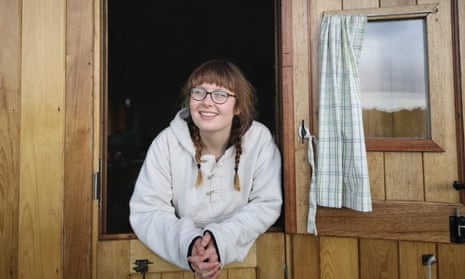
Autism makes travel a challenge. Here’s how I learned to cope
Busy places and unexpected events used to send me into meltdown on holiday. An autism diagnosis helped me to adapt my plans and rediscover the joy of travelling
W andering hand-in-hand through the medieval streets of Bologna, my boyfriend and I were in awe of the sweeping porticoes and distinctive rust-red brickwork of the city. It was our first holiday together. We’d wanted to find somewhere beyond the obvious that would marry our respective interests in architecture and history. Bologna was the perfect fit.
We admired the Church of Santa Maria della Vita , with its imposing baroque interior, lavishly decorated in colourful frescoes and marble carvings. We caught a little red and blue express train up into the hills to the Santuario della Madonna di San Luca , and climbed the bell tower of the Basilica di San Petronio for panoramic views across the city.
But after one particularly long, hot day on our feet, with our stomachs clamouring to be fed, my mood began to shift. With the setting of the sun came the rising of my rage, as we struggled to agree on where we wanted to eat. In a city nicknamed La Grassa (“the fat one”), we weren’t lacking in options; in fact, it was the sheer number of well-reviewed eateries that was overwhelming.

Eventually we decided on pizza, and my boyfriend anxiously led us through sun-dappled alleyways, seeking out a little hole-in-the-wall spot with stellar reviews on Google. Looking back now, I’m ashamed of my reaction once we arrived. Instead of excitedly tucking into the steaming, cheese-drenched deliciousness before me, I burst into tears, refusing to order. And why?
Because they were slices .
In my mind, getting pizza meant that we’d be presented with a whole pizza. The idea of just grabbing a slice or two felt abhorrently wrong. It truly felt to me, in that moment, like I was being asked to do the impossible. Instead, we had to find a standard bistro and get me the right kind of pizza. Scrolling through photographs from that trip for this article, I find a snapshot of my boyfriend opposite me at the table, looking as if he’d just (barely) survived the fury of the Visigoths during the sacking of Rome.
It wasn’t until three years later – in spring 2020, when I was diagnosed as autistic – that this fragment of my life story, and many others like it, finally began to make sense.
B eing autistic means that life is a challenge, every day, in myriad tiny ways most others cannot see. Autistic people often grapple with sensory, social and communication challenges that manifest differently in each of us. As a toddler, for instance, I couldn’t stand the touch of grass on my skin. My parents could pop me down on a blanket by our tent during camping trips, safe in the knowledge that I wouldn’t stray. The same went for sand – putting me down to build a sandcastle on the beach only led to banshee-esque wailing until someone picked me up. When I got older, I preferred to stay by the tent and read my books than risk the chaotic din of the campsite playground. I’ve also always found it difficult when confronted with the unexpected. That could be anything, from a last-minute change of plans to something simply not turning out the way I’d pictured it in my head.
Relentlessly busy places are a terrifying prospect for those of us predisposed to sensory overwhelm. The best way I can describe how I experience this sensation is to ask you to imagine that the whole world has climbed into your chest. It then sits there, heavy and loud and bright, thrumming with energy, too much energy, more than any one person could hold within themselves. And yet, that’s what’s expected of us, day in, day out.
Fortunately, societal awareness of how autistic people interact with public spaces has grown over the past few years, thanks to the rise of lived experiences shared on platforms such as TikTok and Instagram. The thriving autistic creator communities online were a lifebelt for me when I was first diagnosed, providing both insights into my own behaviour and suggesting coping mechanisms.
Initiatives such as the sunflower lanyard scheme are also having a real impact on how employees in train stations, airports, bus terminals and so on are trained in making these places more accessible to those with hidden disabilities. What I have learned is that many challenges can be overcome with sufficient planning and support from those around me. Through much trial and error over the last four years, I’m making real progress towards learning how to adapt my holiday plans to accommodate my needs. I now have a self-made kit for mitigating sensory overwhelm that I take with me whenever I travel: sunglasses, noise-isolating earplugs, noise-cancelling headphones, a fidget toy or two and a safe food to snack on (a favourite cereal bar, for example). Having avoided meltdowns by using these items in the past, I now can’t imagine travelling without them.
The process of writing my book, The Autistic Guide to Adventure , has provided many useful insights too. Designed to introduce younger readers from the autistic community to a variety of different outdoor activities, the book suggests how to best approach them from sensory, social and communication perspectives.
Take kayaking, for instance, a popular holiday activity in the UK thanks to our miles upon miles of public waterways and easily accessible coastline. I’ve kayaked on family holidays since a young age. Before I knew I was autistic, however, I’d never have thought to give myself extra time to get used to sitting in a new boat in a new location, testing the feel of a buoyancy aid or holding the paddle properly. Yet something as simple as taking the opportunity to do that – on dry land, before the kayak even gets near the water – can make a real difference to how comfortable and confident an autistic person might feel about trying this new activity. Most activity providers are understanding and would be happy to facilitate this, if you let them know in advance.
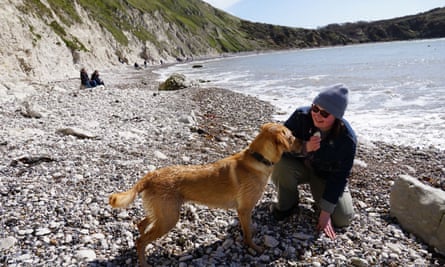
Other simple adaptations to recreational activities include using walking poles for all levels of hiking – not only on mountains – and bringing an inflatable for wild swimming. These help to maintain balance, something that many autistic people find hard because of difficulties regulating their vestibular system.
after newsletter promotion
There will never be one single trip or destination that’s perfect for every autistic person, because our individual strengths, struggles and support needs are so different. But if we each plan ahead and choose what to do or where to go based on our known sensory sensitivities, communication preferences and social battery life, every trip has the potential to be perfect just for us .
M ost recently, my boyfriend and I took a much-anticipated trip to the Arctic Circle, visiting Tromsø. There’s a key difference between this holiday and our stay in Bologna five years earlier: the weather. It’s common for autistic people to have strong preferences when it comes to temperature – in my case, I’ll always choose cold over hot.
That’s why Tromsø in December was a sensory dream for me. Plunged into polar night, the light was never brighter than a muted lilac haze for a few short hours around midday. The temperature was consistently below freezing; the snow lay piled in marshmallow-soft heaps along pavements and roadsides. It was as far a cry from the lively streets and humid air of summer in Bologna as you could get, and it was perfect.

Learning from previous experience, we planned exactly where we wanted to eat during the trip. We spent several cheerful mealtimes huddled by the fire pit at Raketten Bar and enjoyed Pølse , a hotdog stand in a sunshine-yellow kiosk dating back to 1911.
Autistic people often prefer the company of animals to other humans, but it’s not something I’d ever thought to factor into my travel plans before. In Tromsø, we ended up spending three out of our five days on activities involving animals: huskies, whales and reindeer. It was, without a doubt, one of the best decisions we could have made.
The joy of losing myself in a frenzied pack of newfound canine friends radiates from my face in photos from the day we went husky sledding.
Given that travel is something I treasure, it’s a relief to realise that my ability to do it is not limited by being neurodivergent. On the contrary, I truly believe some of my many travel experiences have been – and will continue to be – enhanced by the fact that my brain works on a different wavelength. When I close my eyes, I can still see the play of lavender light on the snow-capped mountains surrounding Tromsø. I’m immediately transported back to a place that felt like home to my soul, soothed without having to take even a step outside.
The Autistic Guide to Adventure by Allie Mason is published by Jessica Kingsley (£14.99 ). To support the Guardian and Observer, buy a copy at guardianbookshop.com . Delivery charges may apply
- Europe holidays
- Travel writing
Most viewed
4 Countries that don’t allow Autistic immigrants
- by Ebubechukwu Isaiah
- June 4, 2023
- 1 share 0 0 1
- 4 minute read
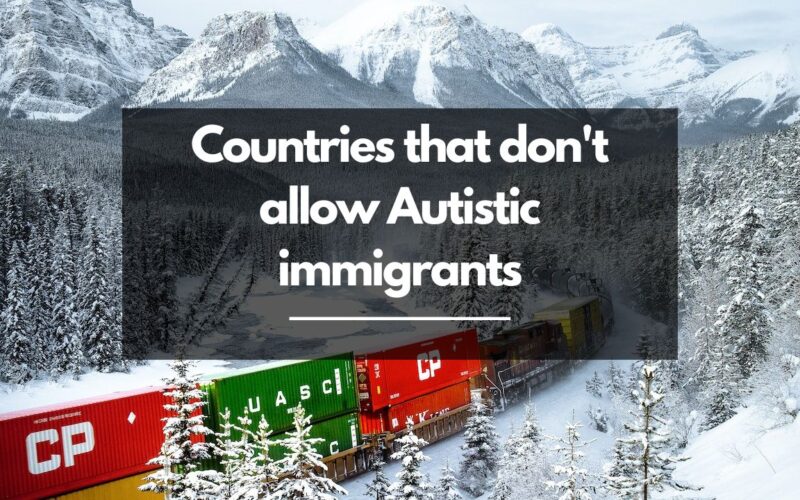
As an Amazon Associate, I earn a small commission from qualifying purchases. Learn more about this.
Society is rapidly evolving to recognize and accept neurodiversity, yet this acceptance doesn’t seem to permeate all borders.
While there are good countries to live with autism , a lesser-known fact is how certain nations impose restrictions on immigration by autistic individuals. This post covers a list of these countries.
Countries that don’t allow Autistic immigrants
It’s disconcerting to think that in this 21st century, some countries still deny individuals the opportunity to immigrate based on their neurodivergence.
This is not a well-discussed topic, but it is an essential issue that needs to be addressed. In this section, we will talk about a few countries that have discriminatory immigration policies against autistic individuals
1. Australia
Australia’s immigration policy has been a subject of controversy due to its ‘health requirement .’ Essentially, Australia doesn’t permit the immigration of individuals who could potentially pose a significant cost to the country’s health or community services.
Unfortunately, this policy may include individuals with autism. This is also the same reason why the country still does Hiv testing before accepting immigrants .
They’ve justified this by arguing that such individuals might burden the Australian health system and special education services, which is a viewpoint that has been widely criticized.
This practice has come under significant fire from disability advocates and human rights organizations, who argue that such policies are grossly discriminatory and that the potential contributions of immigrants should not be overshadowed by their health conditions.
2. New Zealand
Much like Australia, New Zealand’s immigration law includes a ‘health requirement.’ Potential immigrants are required to have an acceptable standard of health to minimize costs to New Zealand’s health or special education services.
The repercussions of this policy have been brought to light i n several high-profile cases where families with autistic children were denied residency . These decisions were made despite the potential immigrants’ skills, qualifications, and ability to contribute significantly to New Zealand society.
3. Singapore
Singapore, known for its strict laws and regulations, extends this rigidity to its immigration policies as well.
The nation’s immigration authorities require medical examinations, and potential immigrants with chronic medical conditions, including autism, may be denied entry . Critics say this policy reflects a broader societal issue, with a lack of understanding and inclusion for people with neurodiverse conditions.
Advocates argue for policy change, insisting on the recognition of the potential contributions of these individuals beyond the narrow lens of medical cost.
4. United Kingdom
The United Kingdom, known for its rich cultural diversity and the acceptance of immigrants from various backgrounds, also has stringent health and social care stipulations within its immigration framework.
Related: 6 Known Countries that Allow Autistic Immigrants
While the UK does not explicitly ban immigrants with autism, it employs a ‘medical examination’ clause that could potentially hinder the immigration of autistic individuals.
The ‘medical examination’ clause is part of the health assessment required for those who intend to stay longer than six months in the UK. This comprehensive examination includes a review of the applicant’s mental health condition.
While this in itself is not discriminatory, it opens up the possibility of applicants with severe autism being denied immigration, particularly if it is deemed that they may place significant pressure on the National Health Service (NHS).
Here’s a typical case of the UK denying people for autism .
Why do these countries decline Autistic immigrants?
The crux of the matter often boils down to an outdated perspective on disability, in this case, autism. Many immigration policies are built on the premise of ‘protecting’ national healthcare systems or social services from potential ‘burden.’
It’s a model that views individuals with conditions like autism primarily as consumers of services, rather than contributors to society.
This viewpoint often fails to acknowledge the many ways autistic individuals can, and do, contribute to the societies they live in.
This perspective also fails to consider the diversity within the autistic community itself.
Autism is a spectrum, and the abilities and support needs of autistic individuals can vary dramatically. To categorize all autistic people as potential burdens based on their diagnosis is not just overly simplistic—it’s unfair. In reality, this should makes these countries among the worst countries to live with autism .
Moreover, it is also important to note that these policies are often reflective of a broader societal issue.
The societal perception of neurodivergence greatly influences policy-making decisions. As societies continue to understand and accept neurodivergence, it is hoped that such discriminatory policies will be reevaluated.
This conversation isn’t an easy one, but it’s a necessary step towards more inclusive and equitable societies. It invites us to reassess how we view disability and worthiness, and challenges us to build a world that respects and values all forms of diversity.
It is imperative for policymakers and society as a whole to challenge existing biases and misconceptions surrounding autism and actively work towards creating inclusive immigration systems that recognize and value the unique contributions and strengths of all individuals, regardless of their neurological differences

Ebubechukwu Isaiah
Alongside being the owner of one of the biggest driving communities, Ebubechukwu Isaiah is a big fan of all things travel. In StrangerMiles, he shares his experience on the dos and donts of travelling.
Leave a Reply Cancel reply
Your email address will not be published. Required fields are marked *
Save my name, email, and website in this browser for the next time I comment.
6 Countries you can immigrate to with Autism
Which european countries do not require transit visa, you may also like.
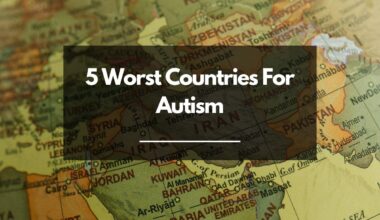
5 Worst Countries For Autism
- June 1, 2023
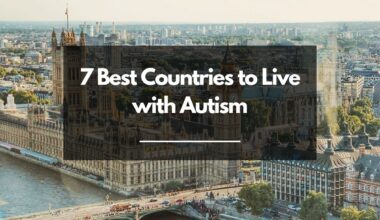
7 Best Country to Live with Autism
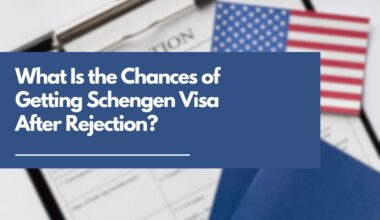
What Is the Chances of Getting Schengen Visa After Rejection?
- July 12, 2023
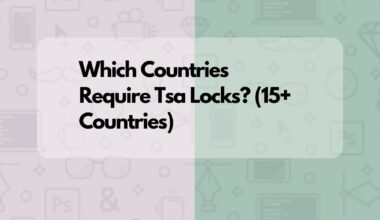
Which Countries Require Tsa Locks? (15+ Countries)
- August 23, 2023

List of Countries that Accept World Passport
- December 1, 2023

Which Countries allow tattoos? Our Overview
- September 28, 2023

- Privacy Overview
- Strictly Necessary Cookies
This website uses cookies so that we can provide you with the best user experience possible. Cookie information is stored in your browser and performs functions such as recognising you when you return to our website and helping our team to understand which sections of the website you find most interesting and useful.
Strictly Necessary Cookie should be enabled at all times so that we can save your preferences for cookie settings.
If you disable this cookie, we will not be able to save your preferences. This means that every time you visit this website you will need to enable or disable cookies again.
6 tips for planning a vacation with a child or travel companion with autism
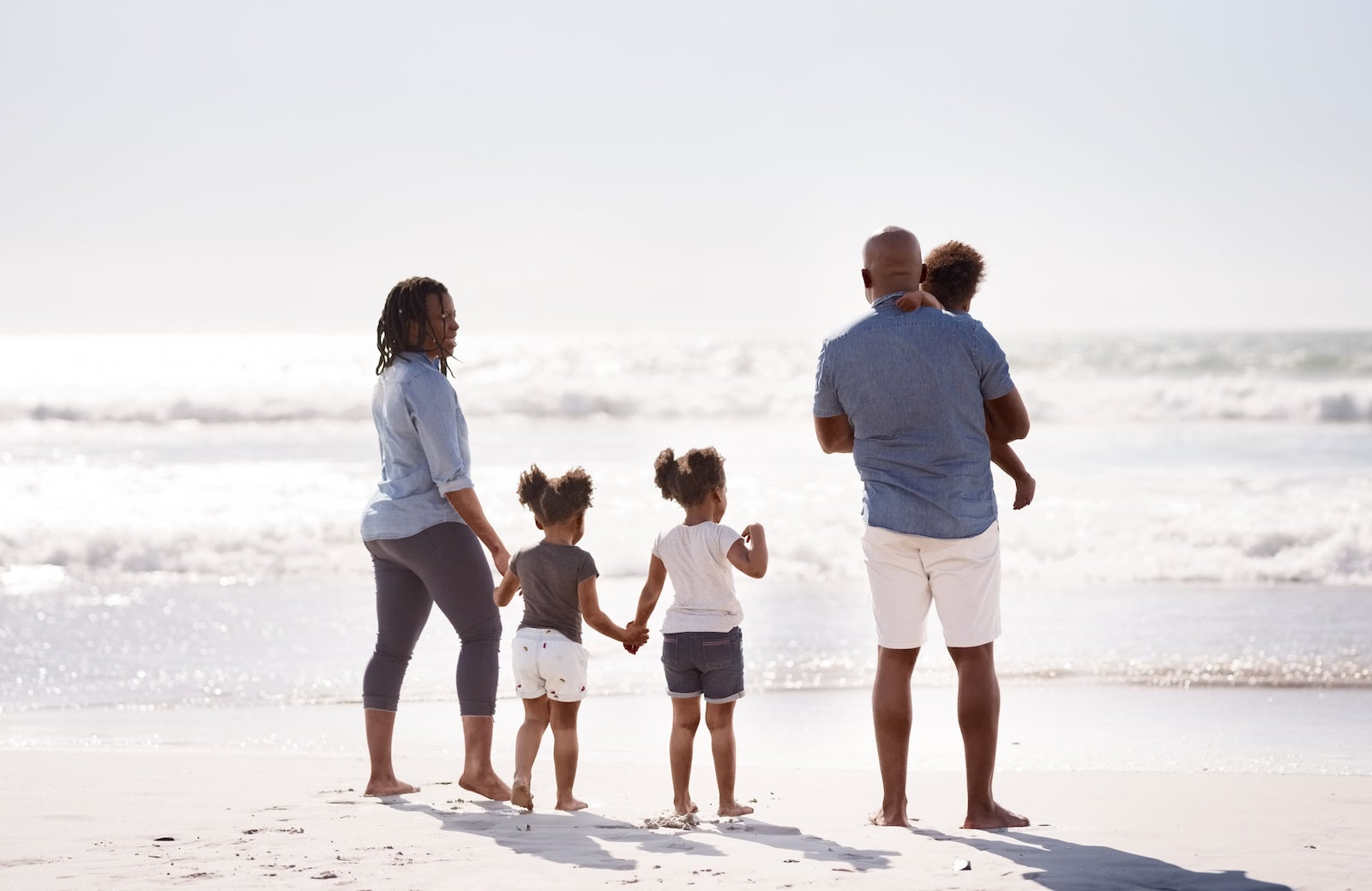
As a travel advisor and certified autism travel professional who has helped over 30 typical and autistic families plan vacations around the world, and a mom to an amazing autistic kid, I know that planning a vacation can be time-consuming. When you are planning a vacation around an autistic child or with an autistic travel companion, you must make sure you check off a few more boxes than usual.
I have seen so many people give up early in this process. And when those people give up, they either go wherever and go home early or they don't go on vacation at all. Both those scenarios break my heart because there are a few things everyone can do to choose the best destination for someone on the autism spectrum .
Sign up to receive the daily TPG newsletter for more travel news!
I discovered this personally after a trip to Walt Disney World Resort, which was particularly tough to travel to with my oldest son. From the discomfort of the heat to his shoes, the trip proved to be one of my most challenging family vacations because no matter what I did that day, I wasnʻt able to support my son the way I normally could have at home. After that experience, I learned that there were many things I needed to look for to ensure my son had a comfortable travel experience.
This is when I began getting my son invested in our vacations and having him plan portions of the trip for us. Learning from my son and his cues, I pivoted my travel agency. I decided to extend what I learned from traveling with my son to other families both typical and autistic, to plan better vacations that considered everyone's needs, from dietary to autism support.
Use these tips to choose the optimal destination when vacationing with an autistic child or travel companion.
Look for quiet spaces
As you are looking for different attractions and activities at each destination you are considering, you will want to search for quiet spaces. Some attractions will have a space where anyone can go if they start to get overstimulated while others will not. I always recommend avoiding those places where quiet spaces do not exist, especially if you know your child gets overwhelmed easily.
Walt Disney World, for example, offers an array of quiet spaces such as:
- Tom Sawyer Island at The Magic Kingdom
- The Liberty Belle Steamboat at The Magic Kingdom
- Maharajah Tiger Trek in Animal Kingdom
- The Garden in the UK in EPCOT
Related: Your guide to visiting Disney World with a child on the autism spectrum
Many hotels offer quiet spaces in the lobby, such as Beaches Negril and Beaches Ocho Rios, both located in Jamaica .
Consider advanced security
We live in a world where various security measures are in place at theme parks, hotels, and many other tourist areas. You might want to consider whether any advanced security measure s are in place as well.
I always look for hotels that offer door alarms before I reserve a room. At attractions, I always make sure my autistic son knows what an employee's badge looks like, so he knows who to approach if we happen to lose each other. Some hotels have a program for autistic families that will issue lanyards or wrist bands.
In general, look for options such as:
- Autism programs that have subtle ways to identify a person with a hidden disability.
- Look for hotels with ample lighting both inside of a room and outside of the room. This helps keep a child visible that is prone to elopement.
- Ensure if there is a pool at the hotel it can only be accessed with a room key.
- Look for security cameras that may help you find your child more easily if they do elope while you are on vacation.
- Look for rooms with multiple ways to lock the door.
One resort doing it correctly in my humble opinion is the Tradewinds Resort in St. Petersburg, FL . Guests are offered a safety amenity kit upon arrival which includes items such as door alarms, outlet covers, visual aide "stop" signs, corner guards, and stove knob covers.
While Disney World does have the Disability Access Service (DAS) their support begins and ends at the theme parks. Unfortunately, you will not find extra support in their hotels.

Inquire about special training for employees
You may want to consider visiting attractions and staying at hotels where employees have been trained on how to interact with people on the autism spectrum. We all know that many people are unsure of what to do and how to act when an autistic child has a meltdown and becomes overstimulated.
When staff members have the appropriate training, they will know exactly what to do. This can mean staff that are more than willing to accommodate your family in ways such as:
- Moving your family to a quiet section of the hotel if noise is a stimulus for your child.
- Keeping an eye out for a child that tends to elope.
Resorts such as Beaches Ocho Rios and Beaches Negril both excel in training for staff in the kids' club, as does Tradewinds.
Related: An insider's guide to what to see and do in Jamaica with a family
Include water activities in the itinerary
People with autism love the water, which is why you will want to choose a destination that offers plenty of downtime at pools and beaches. Whether you choose a hotel with a swimming pool or a destination where you can swim in the ocean, having water nearby is always going to work in your favor. Make sure the hotel you choose has a lifeguard on duty and again ensure the pool can only be accessed by a room key. Most resorts have this feature but it's best to ask.
One hotel that has gone above and beyond is the Sheraton Park Hotel at the Anaheim Resort. In addition to supporting families with an autistic loved one, you'll also find they have life vests readily available for guests who need them.
Related: 9 beautiful hotel pools across the US
Having lived in Hawaii for a number of years, it checks a lot of the boxes for me for not only having lifeguards at hotel pools but also on most public beaches. It's quiet for the most part and offers a relaxing and lower sensory vacation experience. My son in particular loved the KoʻOlina Lagoons on the island of Oʻahu. The lagoons are man-made but the water is so tranquil — perfect for those beginning to learn how to swim or just to splash around in. It's one of my favorite snorkeling spots as well because it's not overcrowded like Hanuemea Bay.
I also strongly encourage you to enroll your child in swimming lessons to promote more safety around the water.
Check Wi-Fi availability
Staying in the middle of the woods where there is no cell service and no available Wi-Fi connection might not be the best idea if your child loves to watch their favorite television show at a specific time every afternoon. I recommend making sure you will have access to Wi-Fi during your vacation, so you can prevent veering off your regular routine. Of course, Wi-Fi can also be helpful when your child gets overstimulated and needs their favorite device to calm down.
Related: Use these tricks to connect to hotel, airline, and airport Wi-Fi networks
If the hotel you are staying at doesn't offer Wi-Fi be sure to bring along a portable hotspot.
Consider transportation options
Free hotel shuttles can be very handy. Time the shuttles accordingly to mitigate waiting. For my son, I know that waiting can be extremely difficult. I try to time our return to the hotel to keep our waits down. I also use the "first and then" method to help him connect the dots about the reason for the wait.
The city of Mesa, AZ, has been designated a Certified Autism City by the International Board of Credentialing and Continuing Education Standards (IBCCES). It has done extensive work to become a destination where you can not only find autism-friendly accommodations, but also shuttle services, restaurants and attractions.
Bottom line
I am often asked if there are destinations to avoid when traveling with a loved one who is autistic. My answer is: There is not a single place in the world autistic people don't live, so no.
With that in mind, I always recommend a plan and an itinerary. While my son doesn't love detailed and strictly structured itineraries he does want a heads up of what we'll be doing in a destination. No surprises! When you add all that together, the actual destination itself will matter less when it comes to your family's needs.
Photo by NickyLloyd / Getty Images.
People with autism navigate roadblocks to serving in the military
Applicants and military members push for review of eligibility standards.
For people on the autism spectrum, finding their place in the American military can be an arduous process. The U.S. Department of Defense considers having autism spectrum disorder (ASD) to be a “disqualifying condition” to join the military. Many candidates are turned away because of their diagnosis.
“I, more or less, had my dream taken away from me,” said Tory Ridgeway, a third-year student with autism at Embry-Riddle Aeronautical University studying aerospace engineering.
Ridgeway, son of a Navy aviation engineer, received a Navy-ROTC scholarship at 18 years old, in exchange for his service in the Navy after graduation. A Navy-approved doctor found his autism to be “mild” and “fully controlled.”
However, a month after his acceptance, Ridgeway was told that his ROTC scholarship was on hold, in part due to his autism.
“It didn't feel like I lost funding for college,” Ridgeway said. “It felt like I had lost a part of myself and who I was.”

While waiting for his appeal decision, Ridgeway reported to New Student Indoctrination (NSI), known as boot camp. His colonel wrote a letter, reviewed by ABC News, recommending Ridgeway for ROTC and commissioned office in the Navy, stating that his “ability to listen to and comprehend instructions and quickly adapt to new activities was on par with his peers.”
MORE 'It's changed my life': Tallulah Willis reveals autism diagnosis as an adult:
Despite the recommendation, Ridgeway decided to withdraw from ROTC after months of waiting for a medical waiver, with no assurances he would be cleared to join the Navy.
“So much of who I was, based around the Navy, about being just like my dad, and that was no longer possible,” Ridgeway said.
Navy spokesperson Mack Jamieson told ABC News that they do not address a scholarship recipient’s ineligibility and that Ridgeway can still pursue enlistment and a medical waiver. Additionally, the Navy claims Ridgeway’s medical waiver appeal was denied during NSI, and that Ridgeway was offered to leave NSI at that point. Ridgeway’s family denies both claims.
An estimated 2% of adults qualify for an autism diagnosis. While roughly 26% of children with autism are profoundly impacted, often intellectually disabled, some experts argue that the remaining 74% should not be disqualified from joining the military just for being autistic.

“National security problems are some of the hardest problems we have in this country,” said Cortney Weinbaum, Sr., national security researcher at RAND Corporation. “It makes no sense to not want all brain types working on it.”
Having authored one of the few studies attempting to assess the military’s handling of neurodivergence, Weinbaum found a community of military members hiding their symptoms to avoid being medically discharged.
Hiding an autism diagnosis can have extreme consequences. Garrison Horsley, despite his autism, was cleared to enlist in the Army and started basic training. But according to his father, Ryan Horsley, he was “locked up” by his drill sergeant and given a medical discharge from the Army within days.
Horsley found out that Garrison’s recruiter allegedly told Garrison not to disclose his autism diagnosis. According to U.S. Army Recruiting Command spokeswoman, Madison Bonzo, the Army “conducted a thorough investigation on the allegations of recruiter misconduct related to the enlistment of Mr. Garrison Horsley… Mr. Horsley’s recruiter no longer serves with the U.S. Army.”
“We don't want this to happen with anyone else,” said Ryan Horsley. “People with autism are amazing people, maybe they have a place in the military.”
Stephanie Miller, Deputy Assistant Secretary of Defense for Military Personnel Policy at the Department of Defense, says the military is beginning to take a more individualized approach to autism in the waiver process, reflecting a more nuanced understanding of the diagnosis.

“With ASD in particular, we've seen about 1,800 applicants come through the process with that diagnosis,” said Miller. “And we've seen about 500 applicants actually approved for a waiver with a history of ASD.”
Miller admits that the waiver process can be opaque and lengthy.
“We do not necessarily put out a lot of information about the waiver process itself, because every review is individualized and depends on those individual circumstances,” Miller told “Nightline.” “But we do believe that we need to do more to make the waiver process understood and known.”
For some military members on active duty, being diagnosed with autism does not mean the end of their service. Maj. Daniel Kiser received an autism diagnosis from an off-base medical provider after nearly 10 years of serving with the U.S. Air Force, having served multiple tours in the Middle East.
Kiser says he got support from his higher ups to continue in his role as an instructor in the Air Force Special Operations Command. He believes his autism has, in some ways, helped him in his role.
“I have the ability to communicate the magnitude of threats in a way that's easy to understand,” said Kiser. “I can aesthetically store and visually recall information, and then can break that information down to a way where everybody else can understand it.”
Kiser started working with the Air Force’s newly formed barrier analysis group on their disability action team, helping those on the autism spectrum navigate challenges and advocate for themselves. He is now helping review the eligibility standards for autism used by the military.
“What we are seeing is last century's policy informing decisions that don't mesh well with our modern understanding of autism spectrum disorder,” said Kiser.

After withdrawing from ROTC, Tory Ridgeway had to pursue his passion for planes by thinking outside of the box. He is now about to start an internship with defense contractor Lockheed Martin, a global security and aerospace company.
“I finally rewrote my identity as someone who is smart and loves planes more than anything else, rather than somebody who needs to be in a uniform,” said Ridgeway.
He also has been sharing his personal story with his local chapter of the Easterseals Community and Disability Services.
“I want them to see me and think, 'my kid has autism and so does he,'” Ridgeway said. “If I can just make one parent hopeful for their kid again, I will have done my job.”
ABC News' Lauren Lantry and Elizabeth Perkin contributed to this report.
Top Stories

Georgia court takes up Trump appeal of Willis ruling, possibly delaying election case

Marathon winner disqualified after taking water from his dad in race: 'I know I won'
- May 8, 3:26 AM

Robert Ray on Trump and hush money trial details
- May 7, 12:17 PM

Man trying to spread HIV through sex with men and teenage boys sentenced to 30 years
- May 8, 4:30 AM

Trump trial: Stormy Daniels tells (almost) all about alleged encounter with Trump
- May 7, 7:29 PM
ABC News Live
24/7 coverage of breaking news and live events

5 places where you can still find gold in America
Posted: November 24, 2023 | Last updated: November 25, 2023
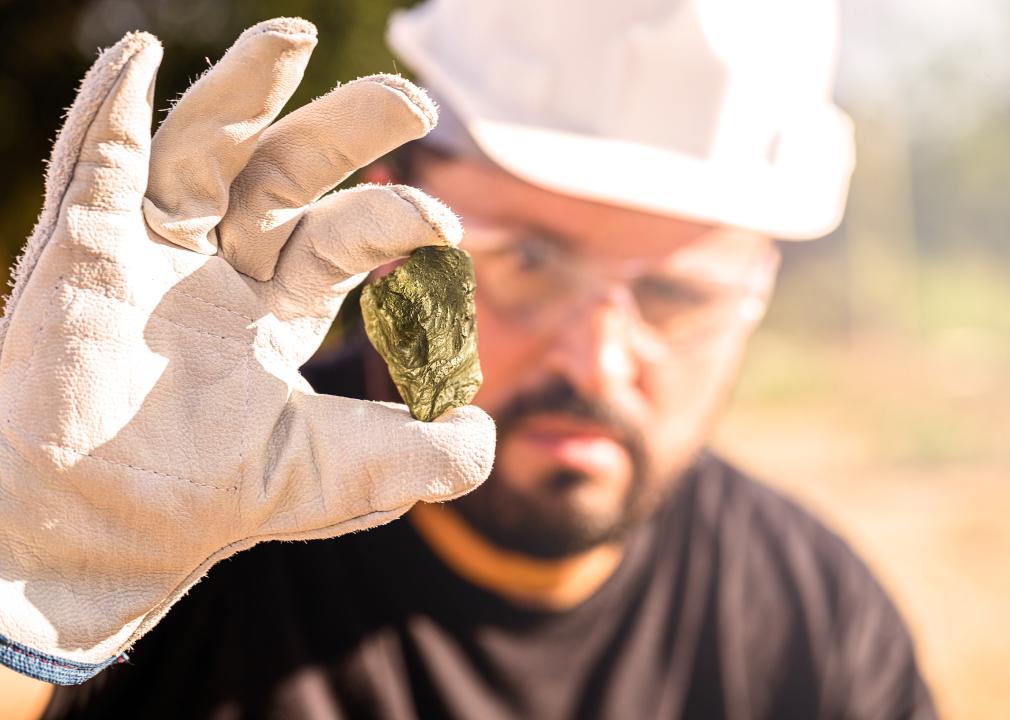
Striking gold may seem like something only heard of in history books now, but there still are numerous places in the United States where you can hit a literal jackpot and take some gold flakes or even a nugget home.
California boasts the most famous gold rush in the country, dating back to 1848. Hundreds of thousands of people poured into California the following year—the largest mass migration in U.S. history—which also explains why San Francisco's football team is called the 49ers .
But California isn't the only place speckled with the shining metal. Colorado first struck gold in 1858 near present-day Denver. Arizona saw its first gold rush in 1858, too, at the Gila River near Yuma. Alaska's gold rush, also known as the Klondike Gold Rush , started in 1896 in Canada's Yukon territory.
Gold rushes nationwide brought new settlers, and these discovery sites grew into flourishing cities. San Francisco and Boulder, Colorado, for example, are among the metropolises that originated from the gold rush era. Nevada, Idaho, Oregon, New Mexico, Montana, Wyoming, Utah, and Wisconsin are all known as great states for gold seekers.
The allure of gold continues to mesmerize people today, leading many to travel throughout the states. These glittery-eyed prospectors, however, still have to keep certain rules in mind , according to the Department of the Interior. They must check if prospecting is permitted and research any regulations on searching for gold and metals. Gold seekers must also gain permission from landowners to start their search. Some public lands, like national parks, don't allow prospecting, but other areas under the Forest Service or the Bureau of Land Management may allow it.
However, gold panning isn't just about finding gold; it's about connecting with other adventurers and reliving a vital moment in American history. SD Bullion researched five places for you to start your glittering adventure, whether it's panning for gold or learning about a place's history.

Libby Creek, Montana
Libby Creek has a mining history that goes back to the 1860s and was named after the daughter of an early prospector, Stephen Allen. With no fee to pan, intrepid miners will be glad to know any gold they unearth is theirs to keep in the gold-panning area.
But prospectors will have to work for their finds. There are no developed parking lots or camping facilities in the gold-panning area. Miners can pitch their tents or park their RVs for up to five days. If you're planning on more extended visits, the Howard Lake campground is only a mile away and offers fishing, swimming, and hiking, as well as a water well and toilets.

Crow Creek Gold Mine, Alaska
Crow Creek Gold Mine is Alaska's most popular site for gold panning. Once the state's largest mine, Crow Creek has operated since Alaska's gold rush began in 1896.
Run by a mining family, it is less than an hour from Anchorage and offers visitors gold pans, sluice boxes (long and narrow boxes with riffles that stop heavier materials like metals from draining), and mining lessons.
Positioned in the Chugach Mountains, this mine also has hiking trails and campsites to enjoy the picturesque views. It's also become a scenic setting for weddings.

Auburn State Recreation Area, California
California still boasts many spots to search for gold along the American River, and Auburn State Recreation Area is one where visitors can go for free. It's found in the heart of the gold country and includes about 100 miles of hiking and horse trails.
Only gold pans may be used here, per state regulatory laws. But don't worry, you may still find gold here, as the streaming water helps erode gold flakes off river rocks. Don't forget to go on a hike or horse ride and catch some beautiful views of California.

Summit County, Colorado
Gold and silver gave birth to Summit County. Colorado's gold boom hastened the inclusion of the state within the newly formed United States government, while silver fueled the county's economy through the 1870s and 1880s.
Though the mining boom has long gone, several places still retain hints of the county's past glories. You can take a daily tour inside Country Boy Mine. You can also pan for gold at Lomax Gulch, where guides will show you the ropes and the difference between the real thing and fool's gold. It's also worth walking along the Blue River for breathtaking views, or bring your gold pan with you and try your hand at panning.

Prescott National Forest, Arizona
Since gold was discovered in the Bradshaw Mountains, Prescott National Forest has attracted many for its abundant natural resources, particularly gold. Gold was first found in the Lynx Creek drainage and remains open for visitors to pan for gold.
At the Lynx Lake Recreation Area, camping is allowed for 14 days out of every 30-day period, though there are no picnic tables, fire pits, or drinking water at the facility. There are private claims on much of the surrounding land, so if you plan to pan for gold, make sure you are within the boundary area.
Adventurers may also want to check out the rest of the national forest, which has over 950 miles of trails and several campsites to enjoy. Possible activities include rock climbing, bouldering, and rafting alongside the forest's incredible landscapes.
Story editing by Carren Jao. Copy editing by Paris Close. Photo selection by Clarese Moller.
This story originally appeared on SD Bullion and was produced and distributed in partnership with Stacker Studio.
More for You
All the Showstopping Looks From the 2024 Met Gala for Your Scrolling Pleasure
This is the salary it takes to be considered rich in every state
Map reveals best places to live in the US if nuclear war breaks out
Michigan Republican Unseated After Losing to Democrat by 20 Points
25 Senior Discounts You Probably Don't Know About, But Should
How Alexandra Daddario Transformed Into a “Woodland Nymph” for the 2024 Met Gala
The most popular TV host of all time isn't Johnny Carson or Dick Clark, according to fans. See the top 28.
15 Jobs That Pay Insanely Well
‘Gray’ divorce is sky-rocketing among baby boomers. It can wreak havoc on their retirements
Trump's Defense Made 'Textbook Mistakes' During Cross Examination: Attorney
17 Uniquely American Things That Non-Americans Are Utterly Fascinated By
Pour Out the Fireball: Florida Georgia Line's Nashville Bar Has Closed
I moved from the US to Ireland. Here are 11 things that surprised me most.
The best- and worst-paying college majors, 5 years after graduation
Australian rock legend dies aged 67
These Are the 28 Most Beautiful Beaches in the World
Texans coach responds to JJ Watt's return offer: 'I need to make that call now'
Here’s What the US Minimum Wage Was the Year You Were Born
What's the average net worth of Americans for every age group? Here's the list — plus 3 ways to raise your wealth if you're not where you want to be
13 Polite Habits That Fast-Food Employees Secretly Dislike
Choose your own adventure: Where to go and how to save on summer vacations

Revenge travel is so last year.
“It's not necessarily about just getting out of the house anymore,” said Sydney Stanback, Global Insights and Trends lead at Pinterest, which has seen more than 1 billion travel searches and more than 10 billion travel saves over the past year.
Sure, many of the usual suspects are once again among the most popular destinations across multiple search engines this year, but she said this summer, “It's more so about traveling with intention.”
According to NerdWallet’s Summer 2024 Travel Report , 45% of Americans plan to take a trip requiring a hotel stay or flight this summer with expenses averaging just under $3,600. A fifth of those travelers expect to go into debt to pay for vacations.
Here’s what to consider when booking a summer trip, including where to go, when to travel and how to save:
Learn more: Best travel insurance
What is the best place to travel in summer?
The answer is subjective, especially this summer.
“Everyone's kind of choosing their own adventure based off of what their needs are for travel,” Stanback said.
Pinterest’s Summer 2024 Travel Report found summer travelers are most interested in adventure, exploring mysterious or uncharted destinations, and rest. Searches for “quiet life” jumped 530%, but that doesn’t mean the same thing to everyone.
“My mother actually just took a yoga retreat to Panama,” Stanback said. “That's what she needed to do in order to get the rest that she needed and the well-being that she needed. But for me, when I think of rest and restoration, I simply think about going to a beach spa and just sitting and being by myself.”
Solo travel remains popular. Solo travel searches reached an all-time high in Google in January, but again, not for everyone.
“For Gen Z specifically, that need is to gather and reconnect with their community because they were in isolation for so long and during very meaningful moments in their lives,” Stanback said. She noted group travel and road trips are of keen interest to Gen Z.
“It's not necessarily about traveling and going out and going to restaurants and going to bars and clubs,” she added. “We actually see that a lot with younger generations. They’re kind of stepping away from that and really considering their well-being when they're taking time off.”
Where do most tourists go in summer?
Expedia’s Summer Outlook and Google Flights identified the same cities among their most searched summer 2024 destinations based on flights, though rankings varied by platform.
Top 5 domestic destinations
◾ Orlando, Florida
◾ Los Angeles
◾ Las Vegas
Top 5 international destinations
◾ Cancun, Mexico
◾ Paris, host of the Summer Olympics
Allianz Partners found slightly different results in their analysis of “more than six million flight itineraries for trips between five and eight days in length for travel booked between Memorial Day weekend and Labor Day.”
Instead of LA and Vegas, Allianz named Boston and Honolulu among this summer’s top five domestic destinations. Internationally, San Jose del Cabo, Mexico; Oranjestad, Aruba; and Punta Cana, Dominican Republic, made Allianz’s top five, instead of Rome, Paris and Tokyo.
“I am expecting crowds to rival last summer's in popular overseas cities,” Expedia’s travel expert Melanie Fish said, noting how places like Barcelona and Venice are trying to curb overtourism. “They're trying fees and if that's not enough, they're going to have to go even further.”
How can I save on a trip?
Summer trips are already costly for many travelers. “Americans with household income under $100,000 accounted for nearly half (46%) of intended leisure travel spend in summer 2023,” according to Deloitte’s Facing travel’s future report from April.
Expedia’s Fish shared five tips for booking summer 2024 vacations:
◾ Bundle your trip. Booking airfare and a hotel at the same time can earn you deep discounts.
◾ Travel midweek or later in the summer if it's an option. You'll save money and save yourself from fighting crowds.
- ◾ Fly early in the day … The early bird who takes the first flight of the day will typically get a better price and a lower chance of delays and cancellations. ◾ Book once, earn twice. You can stack rewards from your travel credit card (and) your airline.◾ Just go. Don't pressure yourself to create the trip of a lifetime … Do it in a bite-sized chunk if possible.
'Expensive in every way': What travelers should expect this summer
How far ahead should I book travel?
“The sweet spot is now,” Fish said. “We're within that 21- to 60-day pre-travel window to save around 15% on airfare, so now is the time to plan. That means ready, set, but maybe wait until August to actually go.”
She said travelers can save an average of $250 on international flights if they wait until the peak summer travel season passes.
“It's 15% cheaper on average to fly domestically in August versus June, 30% cheaper to fly to Europe in late summer, and 55% cheaper to fly to Mexico and the Caribbean in August,” she said. “Of course, August is peak hurricane season , so that has something to do with that price dip.”

IMAGES
COMMENTS
Employees at Legoland Florida Resort in Winter Haven, Florida; Legoland California Resort in San Diego; and Legoland New York Resort in Goshen, New York, are specially trained to ensure guests with autism or other sensory disorders can enjoy the theme park. In the case of Legoland Florida, all three on-site hotels are also Certified Autism ...
Provided by IBCCES. IBCCES - the International Board of Credentialing and Continuing Education Standards - is the global leader in training and certification programs that help organizations better serve guests and clients with cognitive disorders, including autism, sensory disorders, and other hidden disabilities. We work to create inclusion and acceptance for these individuals with ...
Myrtle Beach, South Carolina. Already among the most popular destinations for family vacations in the US, Myrtle Beach is also one of the best for autistic travelers. In 2018, the city worked closely with restaurants and local attractions to accommodate travelers with special needs. Most notably, this effort manifested in the CAN Card (Champion ...
Can you travel with an autistic child? Consider your child's interests when planning an autism-friendly vacation — Photo courtesy of MariaDubova / Getty Images. It's possible to travel with an autistic child, and the trip can be fun and relaxing. The first step in planning any vacation is selecting a destination.
Families traveling with a child with autism usually have a good idea of what they need to have a successful vacation. They often look for destinations where they can create a predictable schedule ...
Autism-friendly vacations are designed to create inclusive and supportive environments where individuals with autism can fully enjoy their travel experiences. These vacations recognize and embrace the diverse sensory, communication, and social needs of individuals on the autism spectrum. By understanding and addressing these unique needs ...
Traveling with Autism. Traveling can be challenging for children and adults with autism. The changes in routine, unpredictability, crowds, new noises and sights can all make the experience difficult for people on the spectrum and their families. We hope that with a little planning and information using the resources below, the doors will open ...
Travel with autism can be challenging - you need to know how to deal with some issues that will come up. But once you nail it, it's a big life-changing experience.. My name is Leonie, I was diagnosed with Asperger's syndrome in 2016. As an autistic person, traveling is a kind of therapy for me.Changing the environment and interacting with different people has a positive effect on my self ...
1. Practice makes progress! Becoming familiar with what sights and sounds to expect during a new experience can help reduce anxiety for an individual with autism. A good way to help your child with autism be prepared for and comfortable with the idea of travel is to use of teaching stories! Teaching stories are customized, very brief stories ...
Explore our autism-friendly locations where you can plan your next vacation. Plan unforgettable, autism-friendly vacations! Autism Travel Club connects families with autism to trained professionals, discounts & autism-ready destinations. Create lasting memories & stress-free travel.
Other travel tips for families with autism. Don't be afraid to call the hotel and be honest that you're traveling with someone with autism who has certain needs, such as requesting a room far from ...
Conclusion. Traveling with autism can be challenging, but with some careful planning and preparation, you can help manage your sensory issues and make your trip as enjoyable as possible. Remember to plan ahead, manage noise, light, and smells, and choose accommodations that can accommodate your needs. With these tips, you'll be able to focus on ...
2 Tips to Travel with a Child Having Autism. 2.1 Choosing the Right Destination - Starting with Smaller Trips. 2.2 Consider you Child's Needs while Planning an Itenary. 2.2.1 Prefer Nature Trips above the Rest. 2.2.2 Theme Parks for the Sensory Seekers. 2.3 What to Pack before Travelling with a Child having Autism.
Simple Tips for Stressless Travel. The easiest way to travel with an autistic person is to return to the same place at the same time every year. Knowing where and when you're going, how you're getting there, and what to expect when you arrive can take a great deal of anxiety out of the process. Add to that some careful planning to include ...
F or many people, an out-of-town trip can be refreshing and invigorating. Experiencing a new place together as a family offers the chance to make lasting memories outside your normal routine. But ...
8. Smugglers' Notch Resort, Vermont, USA This family-friendly Vermont resort offers adaptive ski programs for kids with autism or other disabilities. Come summers, families can organize horseback riding, hiking, kayaking and even one-on-one swimming lessons for their child with special needs. 9.
These tips involve strategies for planning ahead as well as affirm the importance of you enjoying your experience while traveling. For many autistic adults, travel can represent both an exciting means of accessing new experiences and a stressful, sometimes overwhelming process that makes it hard to enjoy all the positives.
Photograph: Chris Moore. Europe holidays. Autism makes travel a challenge. Here's how I learned to cope. Busy places and unexpected events used to send me into meltdown on holiday. An autism ...
Autism Spectrum Disorder (sometimes referred to as Autism Spectrum Condition), is a neurological condition that can impact communication and socializing skills. Autistic people are highly sensory people, in that they may be hypersensitive or hyposensitive to different sensory input. I was diagnosed with autism in 2015.
4. United Kingdom. The United Kingdom, known for its rich cultural diversity and the acceptance of immigrants from various backgrounds, also has stringent health and social care stipulations within its immigration framework. Related: 6 Known Countries that Allow Autistic Immigrants. While the UK does not explicitly ban immigrants with autism ...
Vacation tips for families with kids on the autism spectrum. 1. Manage your family's routines ahead of time. Predictability is important in the life of a child with autism, and for this reason, one of the first things parents need to determine before traveling is which routines can go with them overseas.
Traveling is a fundamental human experience that can provide individuals with many advantages, from broadening perspectives to developing new social skills. However, for individuals with low support needs autism, an adult travel adventure can offer even more significant benefits that can lead to improved well-being and quality of life.
As a travel advisor and certified autism travel professional who has helped over 30 typical and autistic families plan vacations around the world, and a mom to an amazing autistic kid, I know that planning a vacation can be time-consuming. When you are planning a vacation around an autistic child or with an autistic travel companion, you must make sure you check off a few more boxes than usual.
Photo by Mike Marrah on Unsplash. 2. Take advantage of sensory spaces in airports/lounges. Many airports worldwide have sensory or quiet spaces for people with sensory conditions.
For people on the autism spectrum, finding their place in the American military can be an arduous process. The U.S. Department of Defense considers having autism spectrum disorder (ASD) to be a ...
But California isn't the only place speckled with the shining metal. Colorado first struck gold in 1858 near present-day Denver. Arizona saw its first gold rush in 1858, too, at the Gila River ...
National Nurses Week 2024: Chipotle's free burrito giveaway, more deals and discounts Nurses should be celebrated every day, but they do have a special week: National Nurses Week, which runs May 6-12.
Revenge travel is so last year. "It's not necessarily about just getting out of the house anymore," said Sydney Stanback, Global Insights and Trends lead at Pinterest, which has seen more than ...